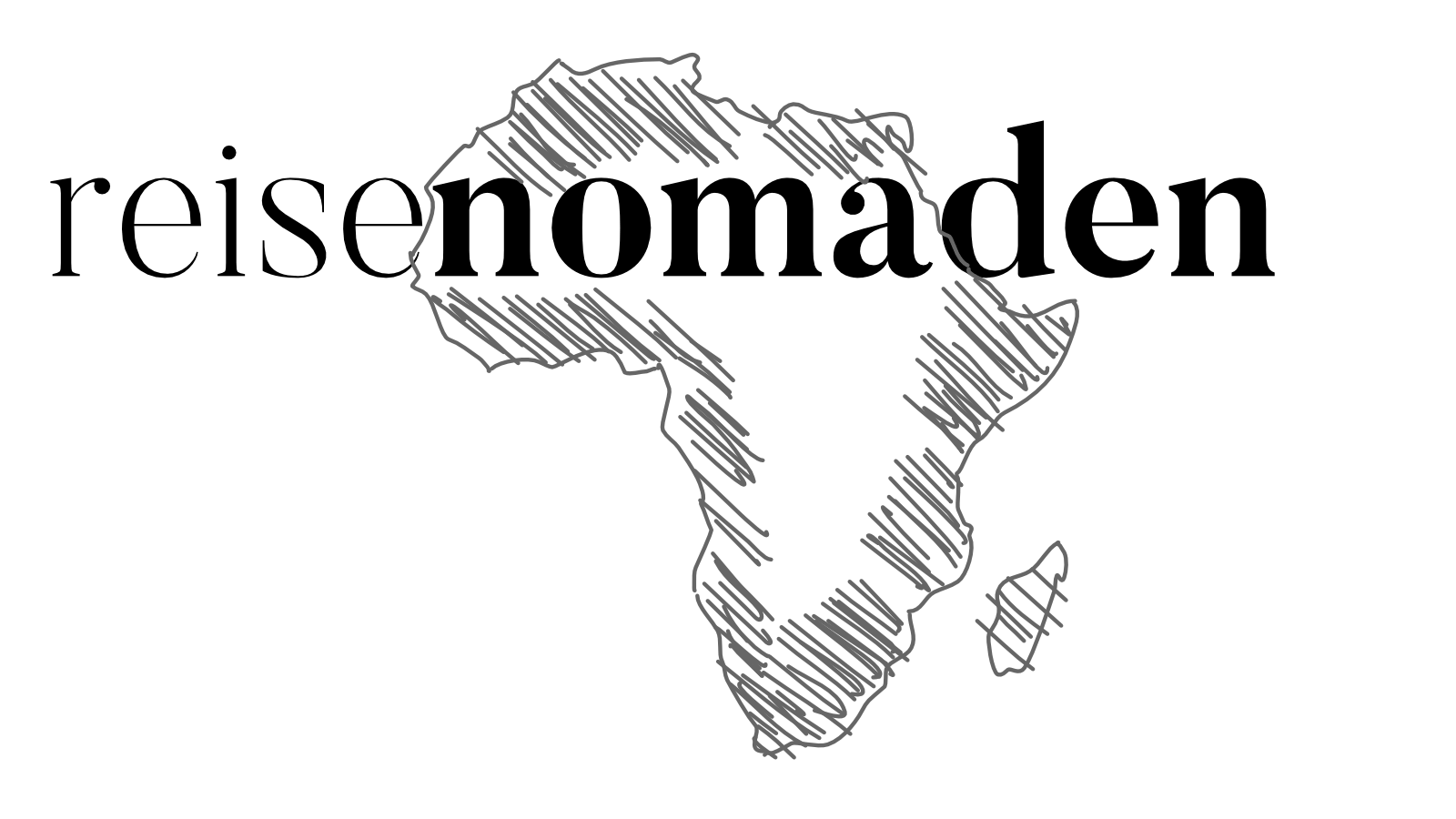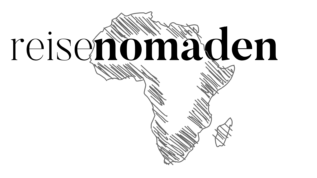After we left the CKGR, the road led us first to Maun. There we had our service done at Toyota. We were pleased to see that the best mechanic we had experienced in Africa is still employed by the company. He is now working in the Kasane branch. We stayed two nights at Audi Camp, stocked up on supplies, and drove well prepared towards Moremi and Khwai. The approach is via a wide dirt road that splits after a while, allowing us to drive all the way into Chobe National Park. Our destination was Magotho, the Khwai Community Camp, which is located directly on the Khwai River and has its own area nestled between Moremi and Chobe.
Khwai Community Camp
The access road is a bit confusing. If you follow the signs to Moremi, you have to cross the Moremi Game Reserve as a transit guest from south to north to reach the camp. During the rainy season this involves several deep water crossings. We refrained from doing this, in deference to Sonja’s stance on water crossings. In addition, we were able to save the substantial entrance fees. Instead, we followed the dirt road towards Chobe and reached the Khwai Development Trust area after about 125 kilometers of driving. This drive was challenging enough for Sonja, because due to the previous three days, with partly heavy thunderstorms, we had to overcome a lot of flooded and muddy passages. However, none of them was problematic and so we reached the camp without incident.
It was beautiful at the Khwai – and quiet
The camp was very spread out. The newer campsites had brick braai stations and concrete platforms for campfires. The older ones had no facilities and were only recognizable by mowed grass. Some of them were in excellent locations and offered expansive, generous views. That was exactly our thing and so we decided for the old campsite No. 2. The only disadvantage was that it was very close to the ablutions and we therefore had occasional visitors from other guests. On the positive side, besides the wide view I mentioned, was the proximity to the river. Nothing happened the next morning. We got up at 04:00 am and were ready to leave at 05:30 am, with the onset of dusk. It was very quiet. Although we explored large parts of the area, few animals showed themselves. Besides wildebeest and zebra, these were mostly impala and a few bull elephants. As for cats, we could determine a lot of tracks, but the originators of the same did not show up.
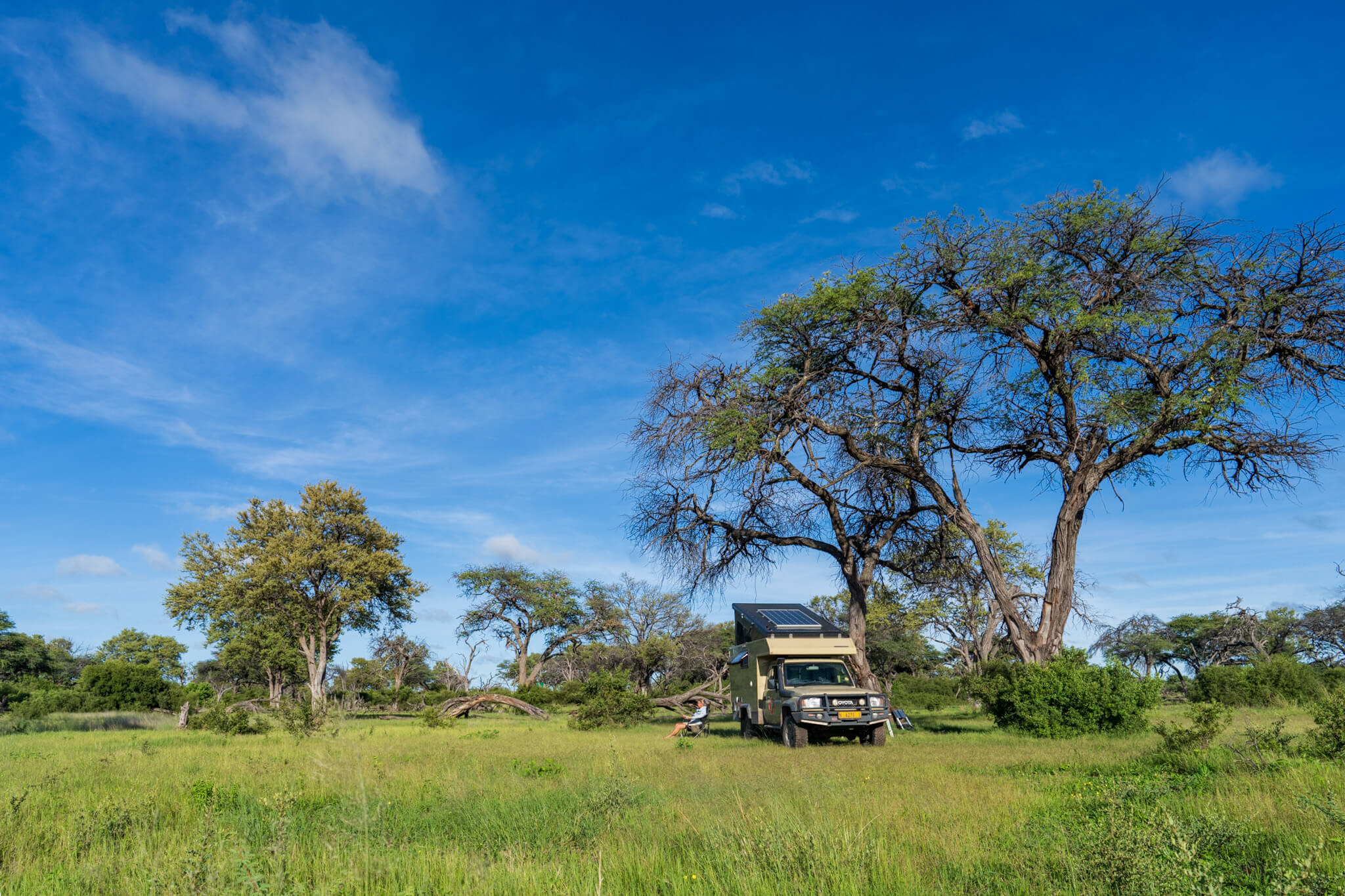
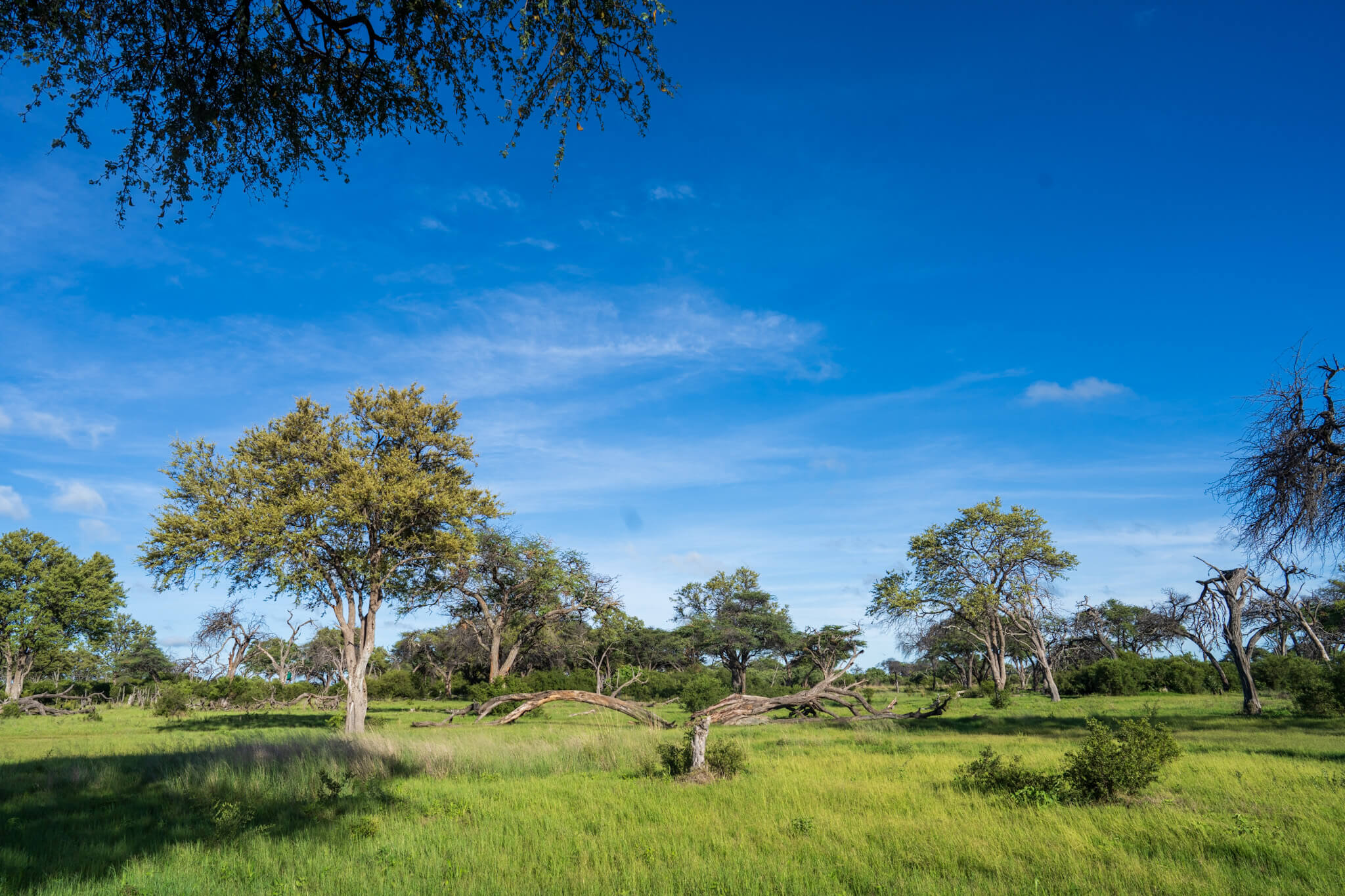
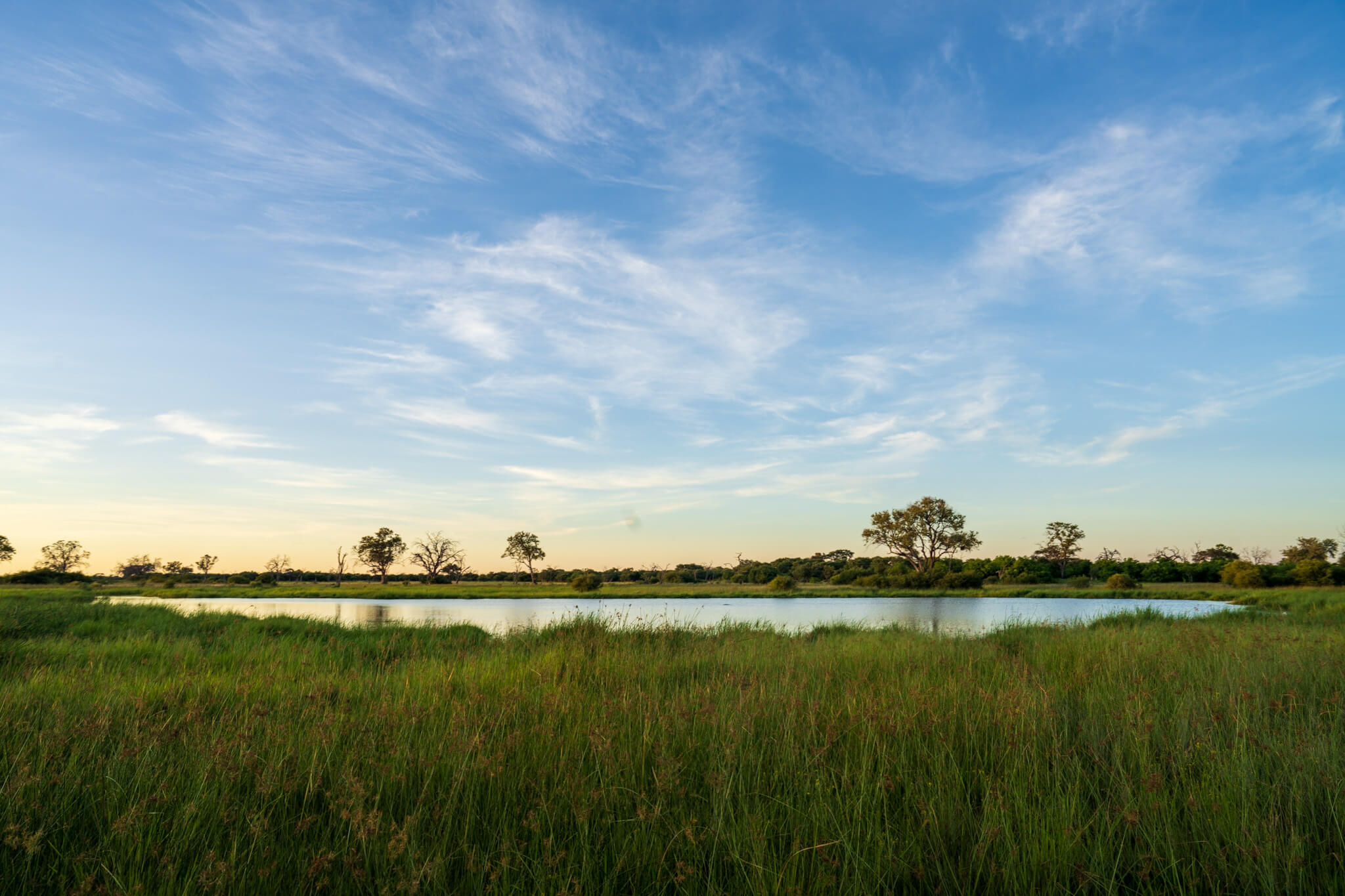
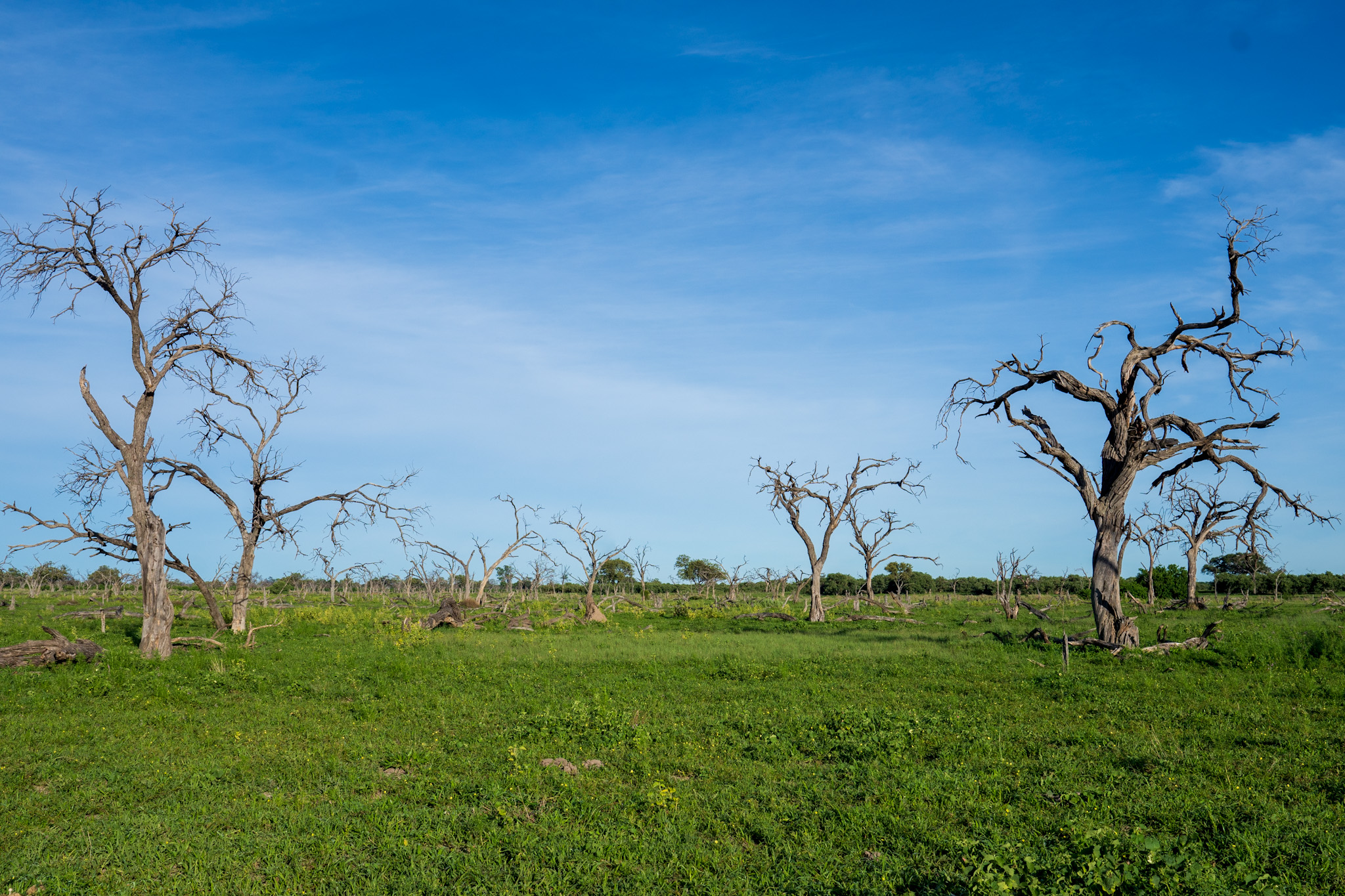
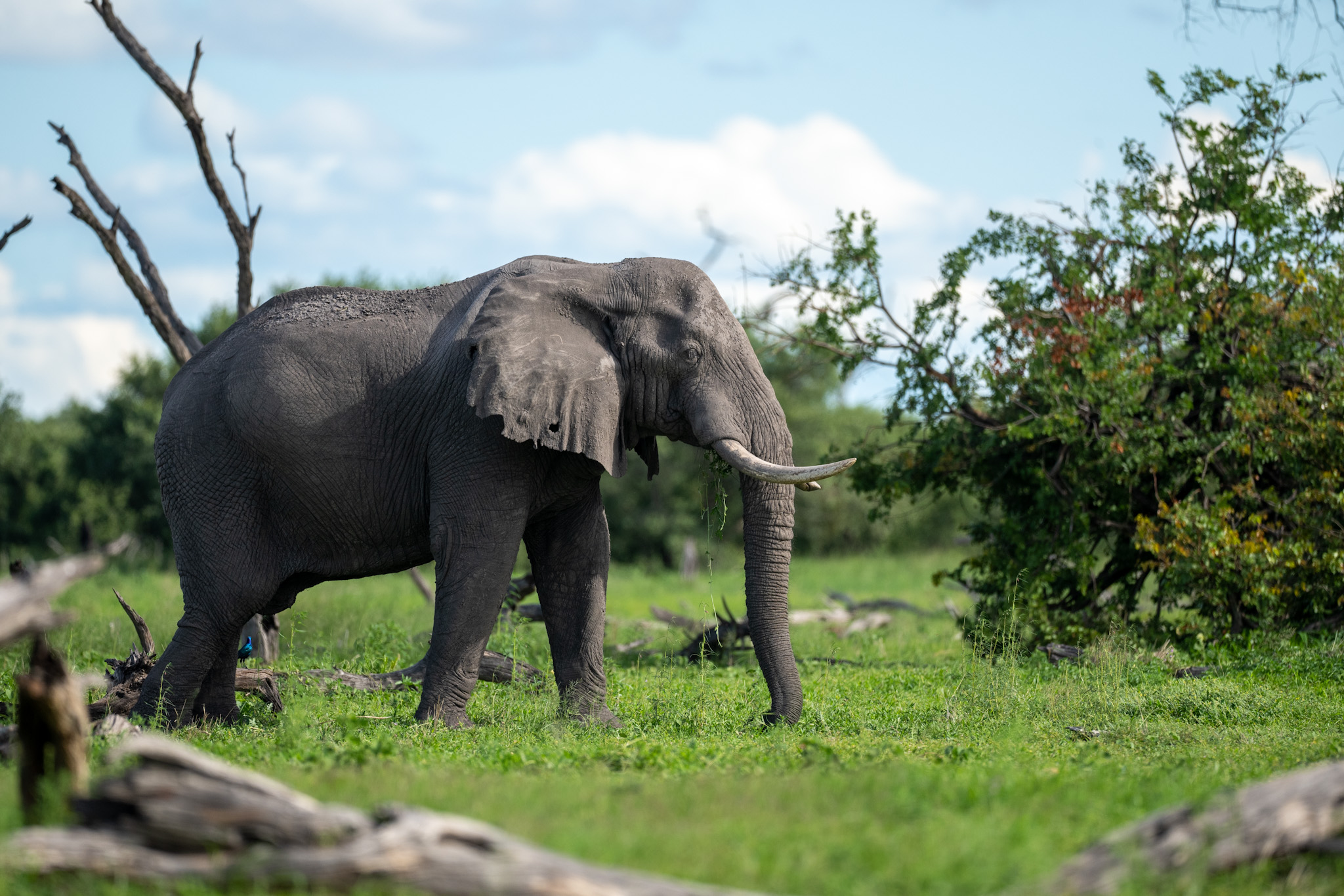
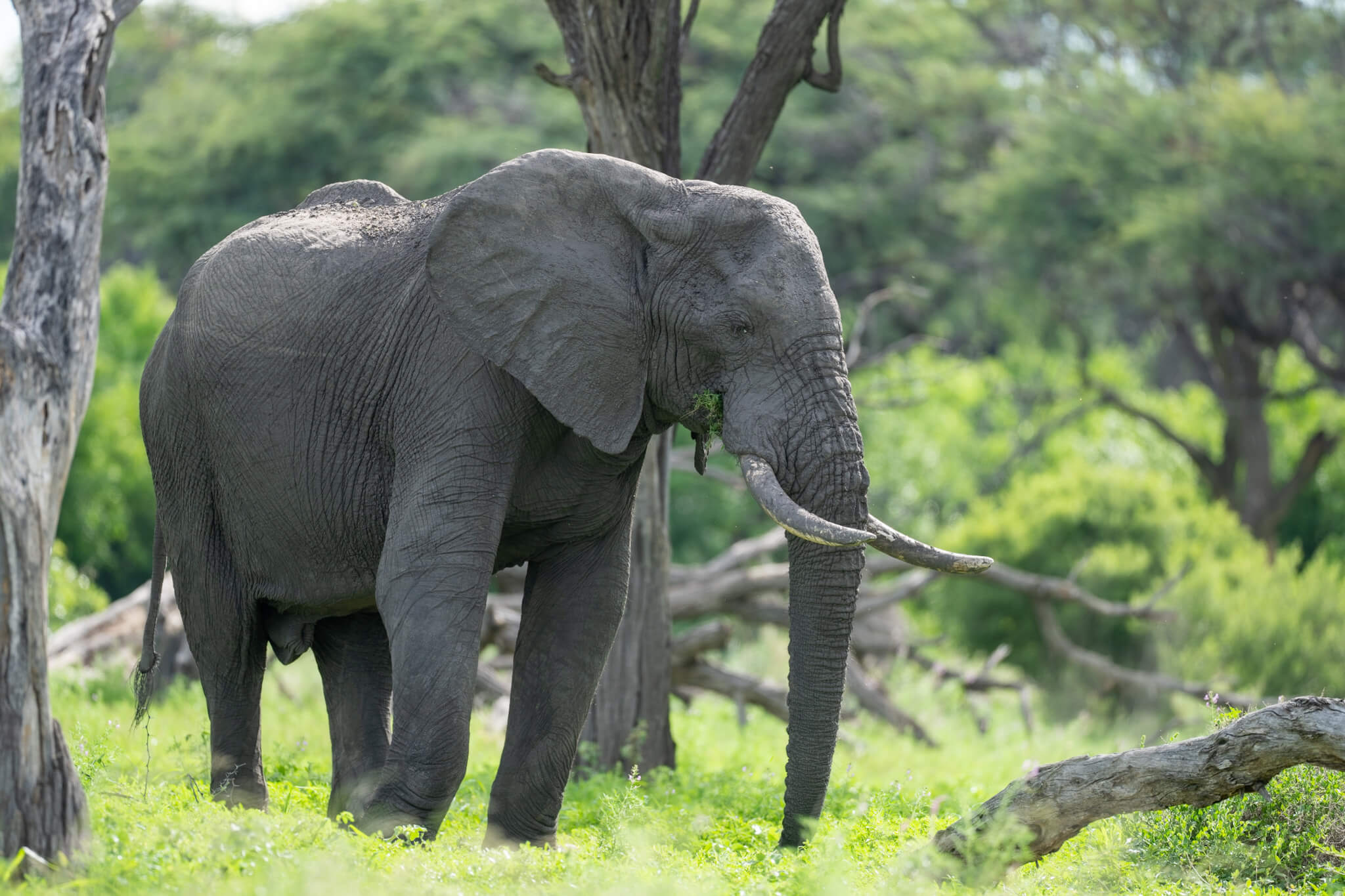
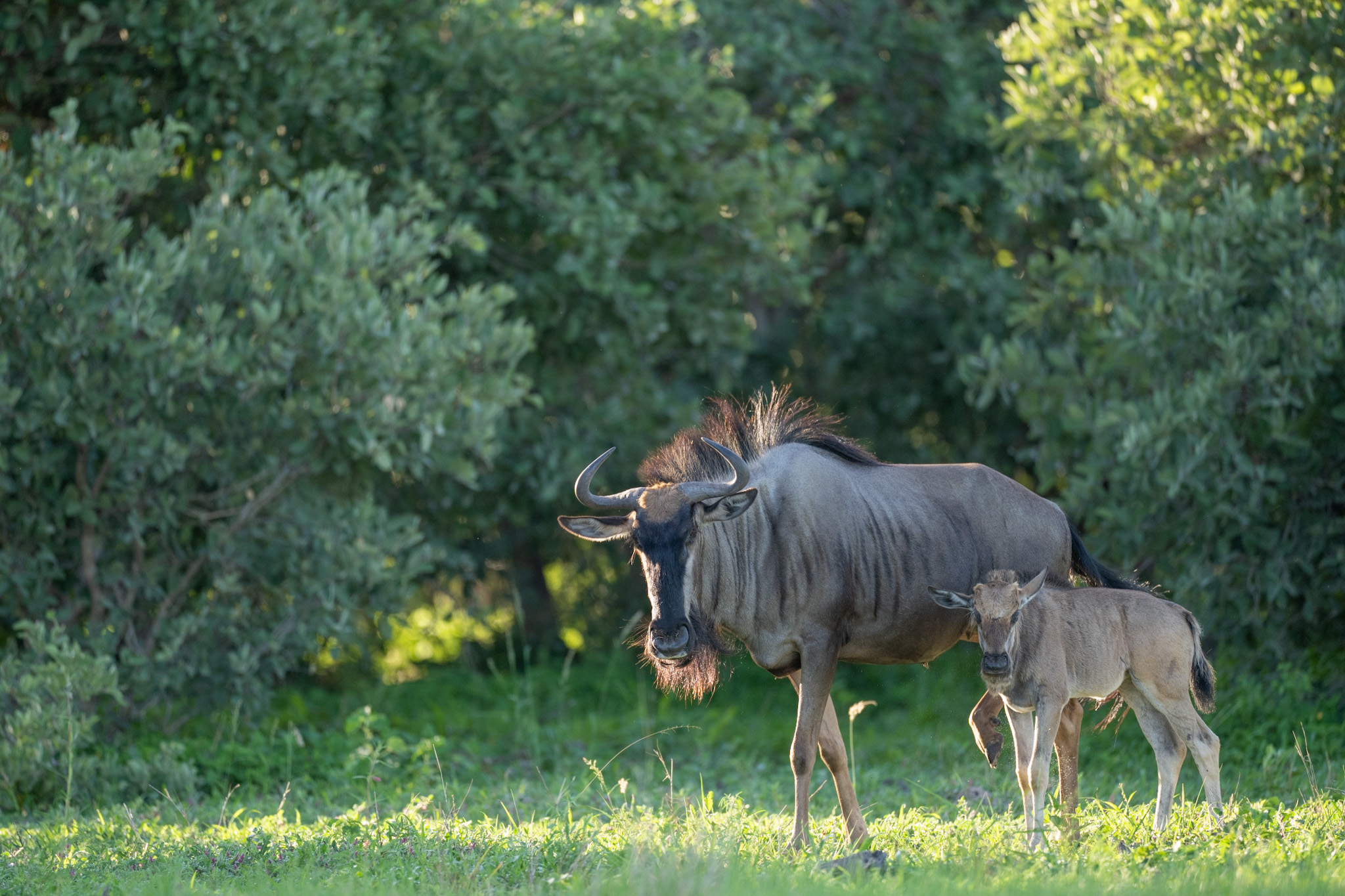
Our first juveniles Tawny Eagle
In the afternoon we had the pleasure of watching two juvenile Tawny Eagle for some time. This was our highlight of the afternoon game drive. No cats showed up again. Then, however, there were first signs. When we returned to camp, we heard a lion roaring at a great distance – this was at about 6:30 pm. Suddenly we could not believe our ears, because in quite close distance another lion roared. We could make out the direction very clearly and estimated the distance to be less than two kilometers. According to our estimation, this lion had to be on our side of the river. For us it was clear that we wanted to get up again at 04:00 the next morning – the early bird catches the worm.
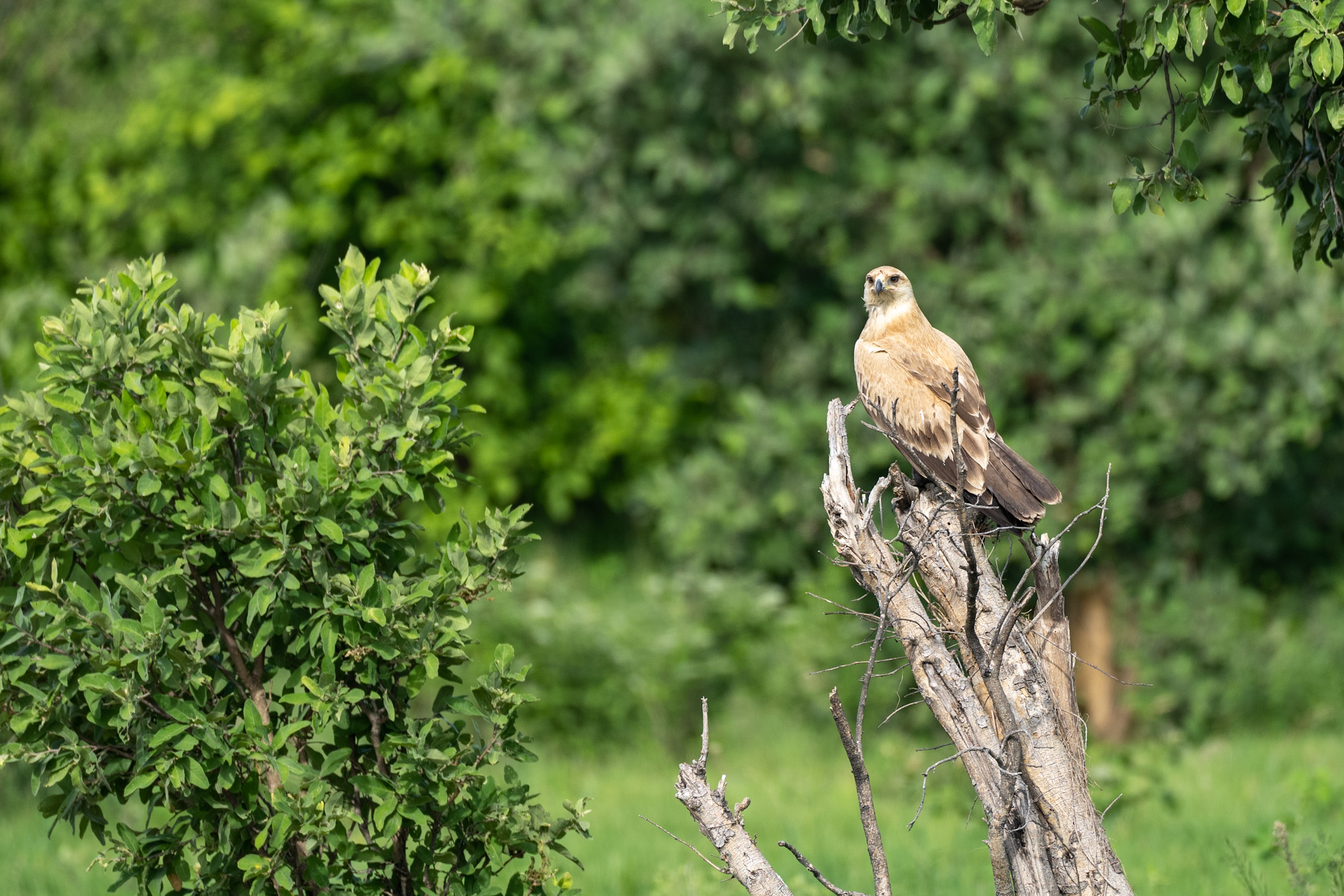
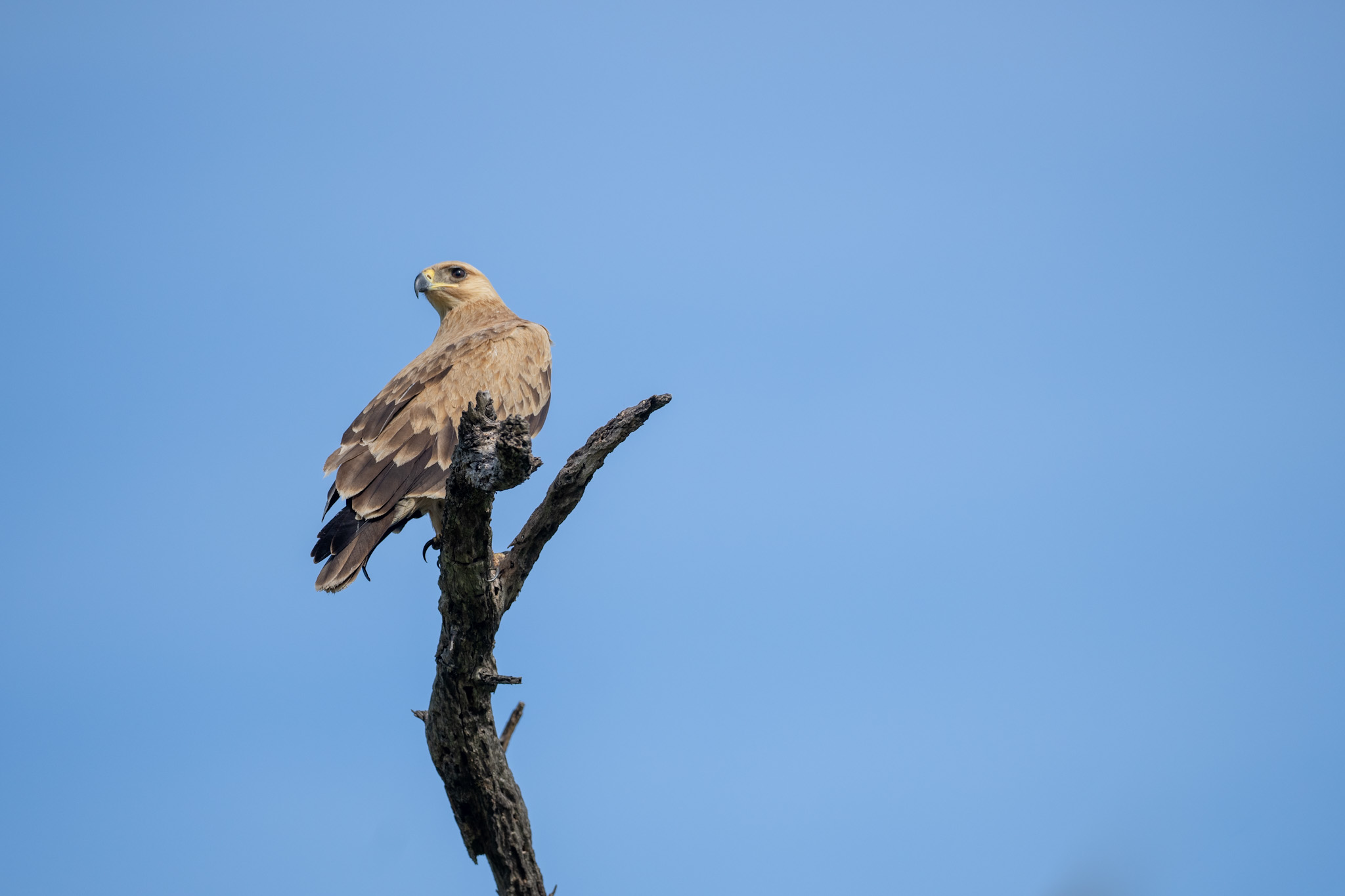
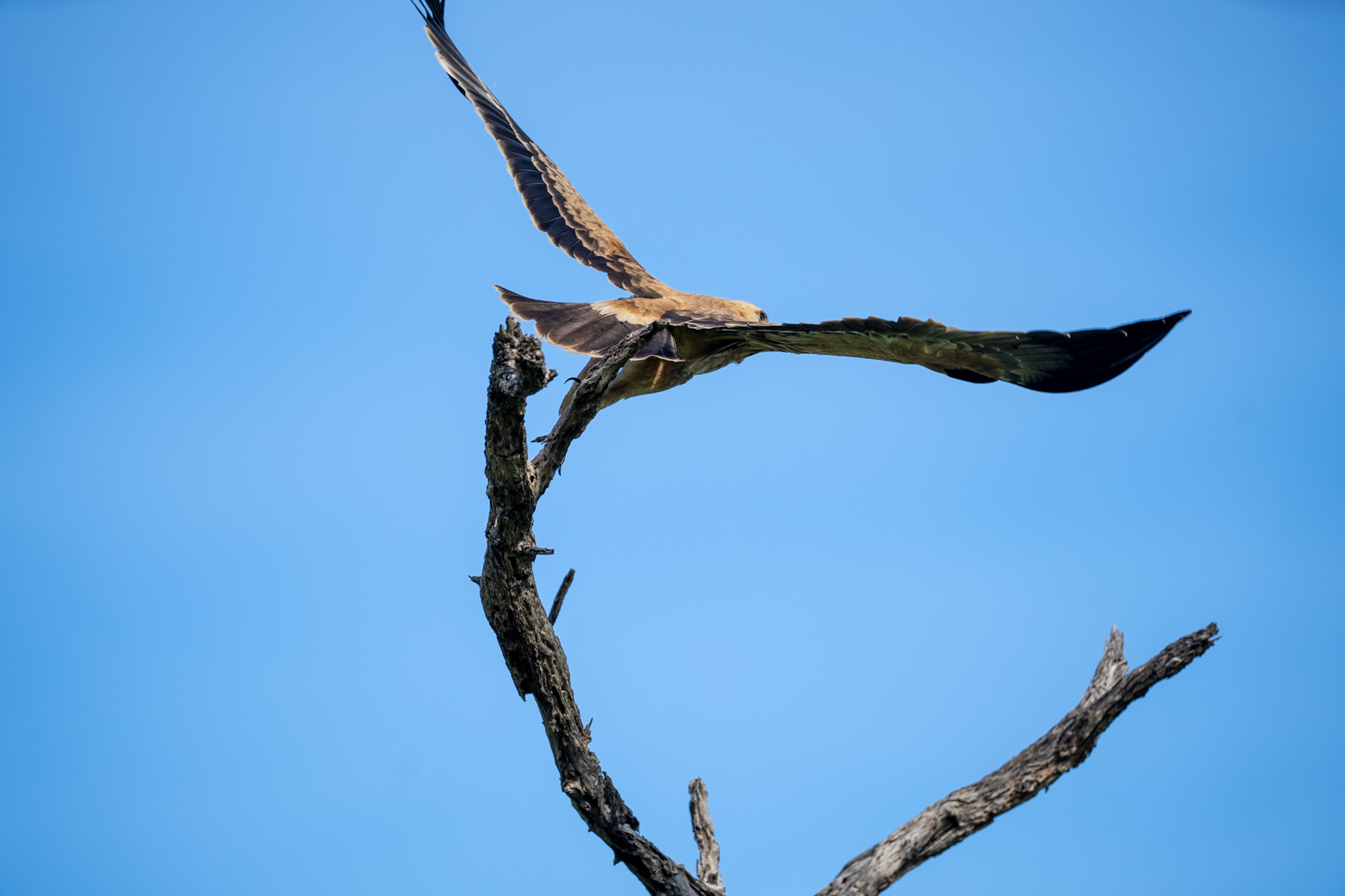
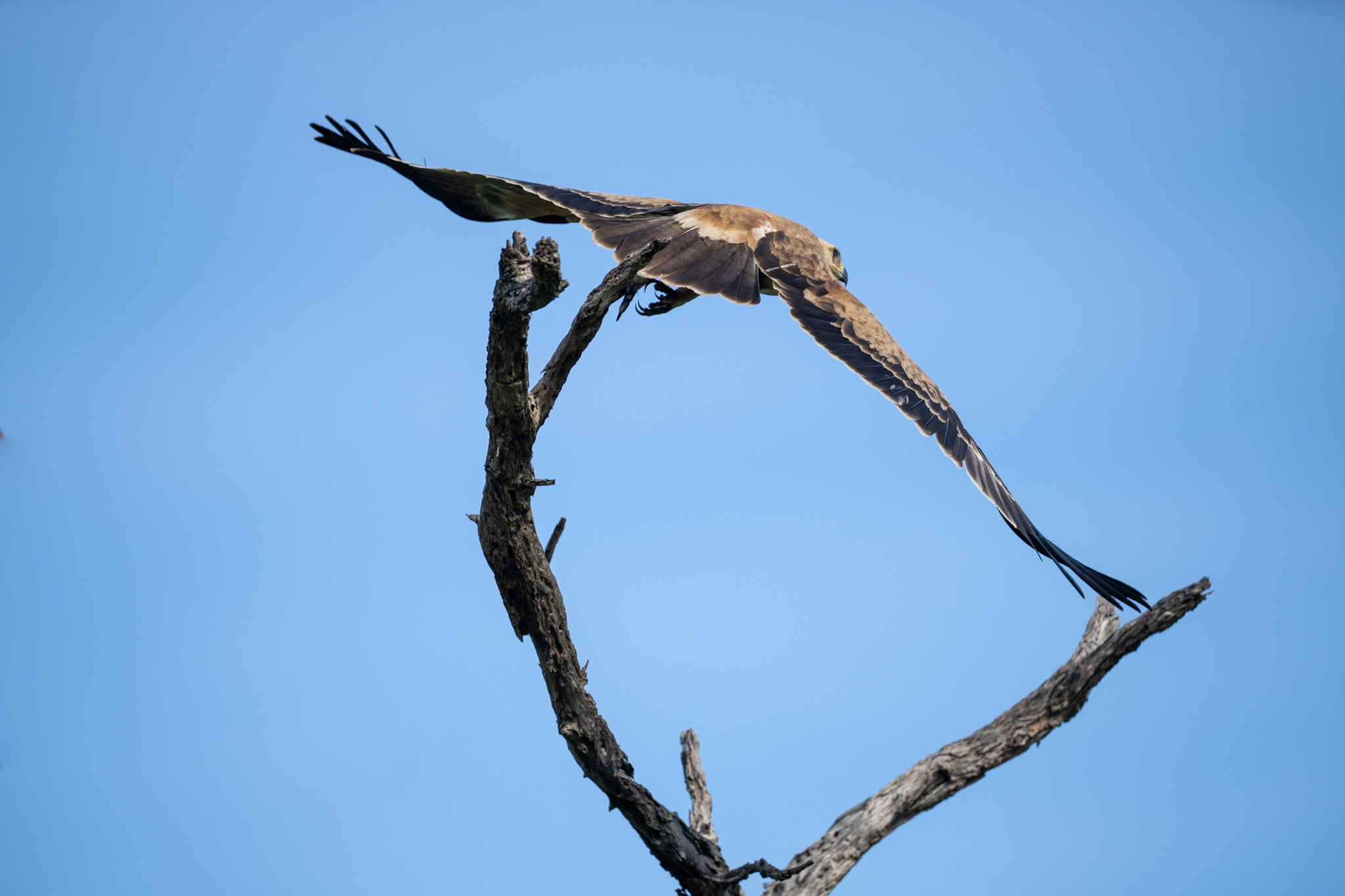
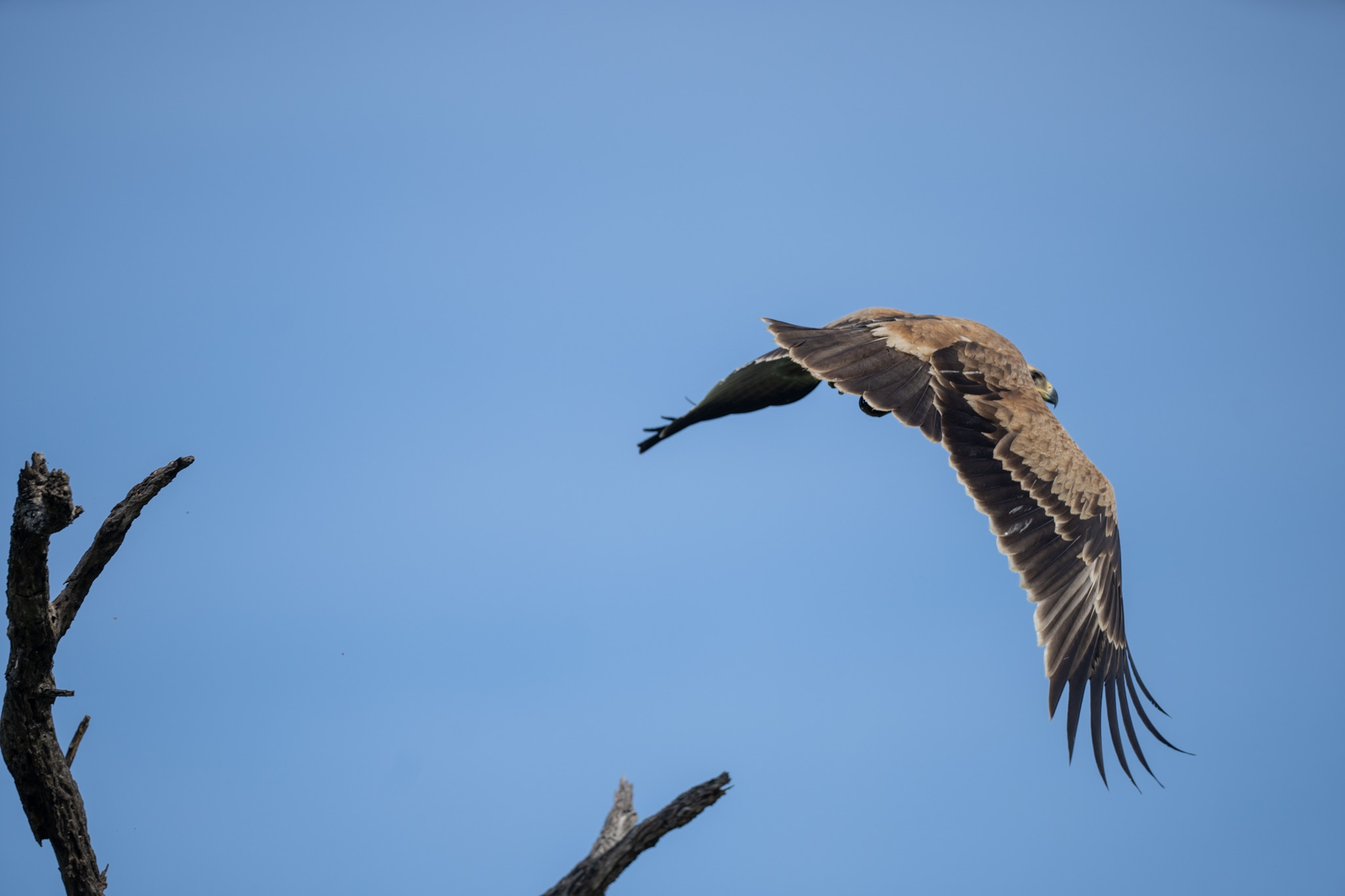
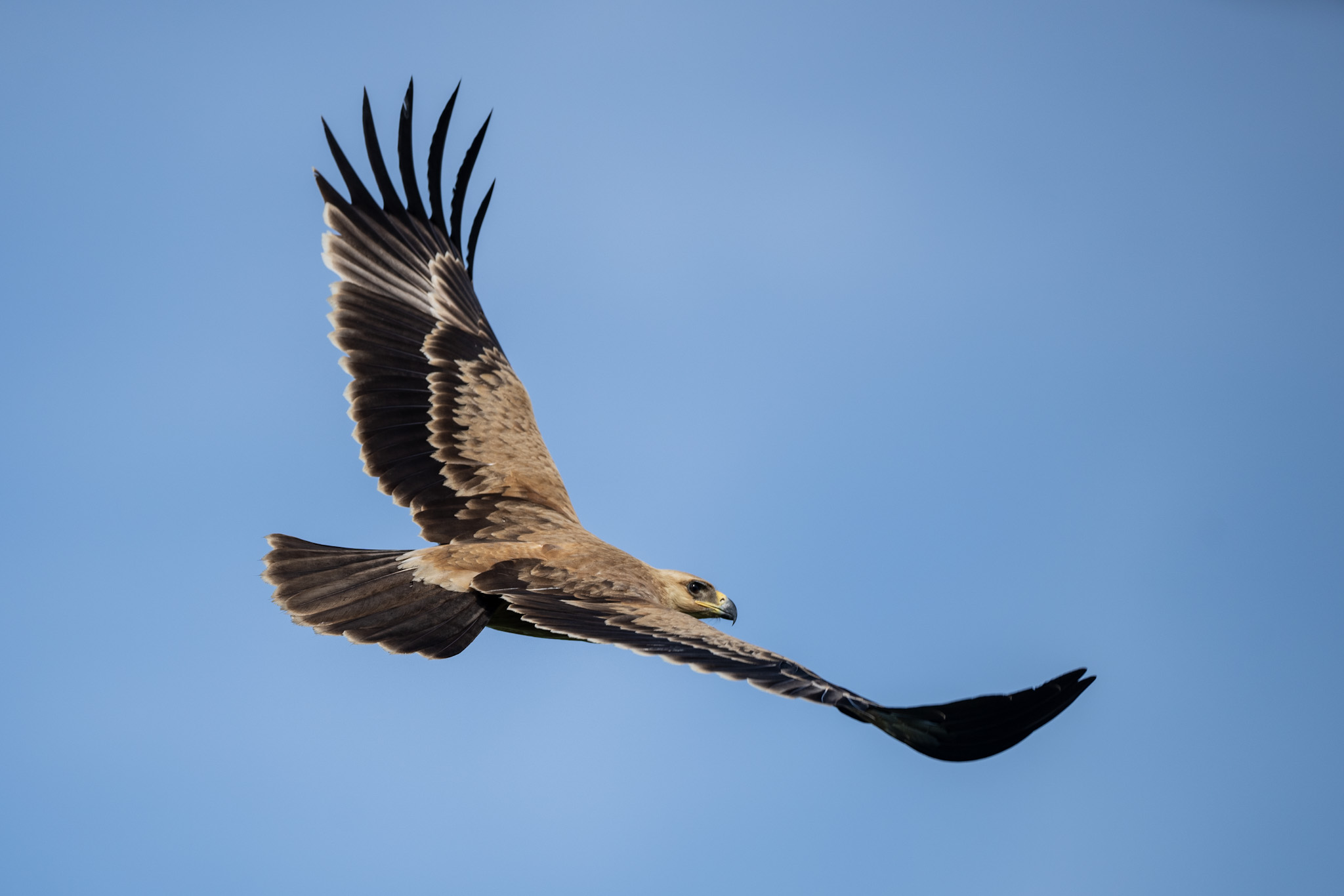
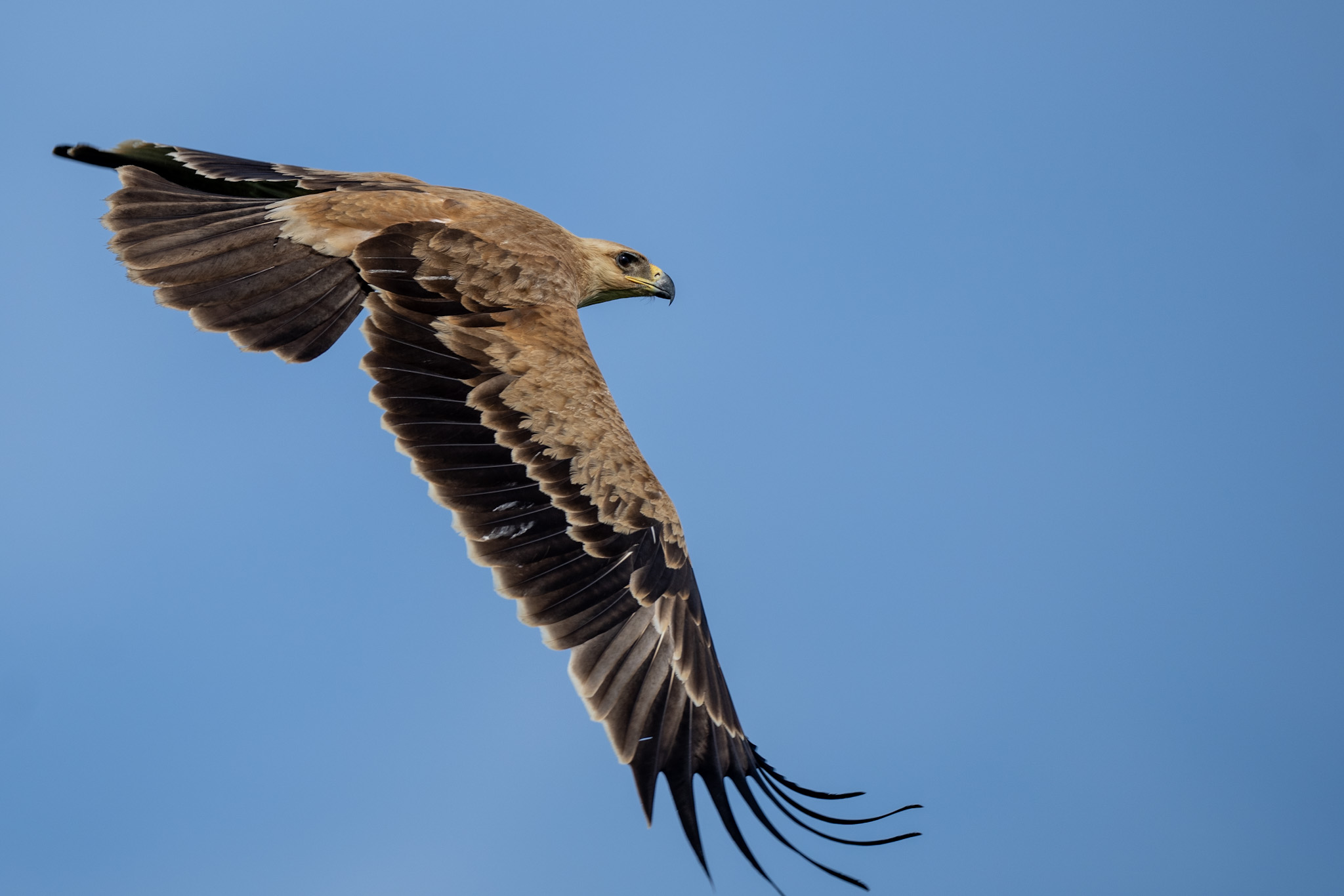
Has anyone seen lions?
As discussed, the alarm clock rang at 04:00 am. At 04:20 am we sat in the dark of the night next to the car and drank our first coffee and tea. Around 05:00 am it happened: A roar pierced the night and it was so loud that we thought the lion was 5 meters next to the car. We looked at each other and a big smile was on our faces. The heartbeat increased and a tingling sensation ran through the body. Guido drank a quick second coffee, visited the restroom and then we were ready to leave. We drove past Campsite 1, saw the six South African campers there standing next to their cars scanning the area, and not 300 meters further it was already so far and a lioness was lying next to the road in the grass. When we arrived at dusk, she roared again.
The sound is so fantastic that we can’t put it into words. Every milliliter of fluid in your body begins to vibrate and goes into resonance with this incredible sound. You feel this tremendous power from the tip of your feet to the top of your head. This was the second time we experienced this right next to us. The first time was a massive male lion, a few meters next to our game vehicle, in Sabi Sands, South Africa 2013. From this you can see that this does not happen that often and can only be called a stroke of luck.
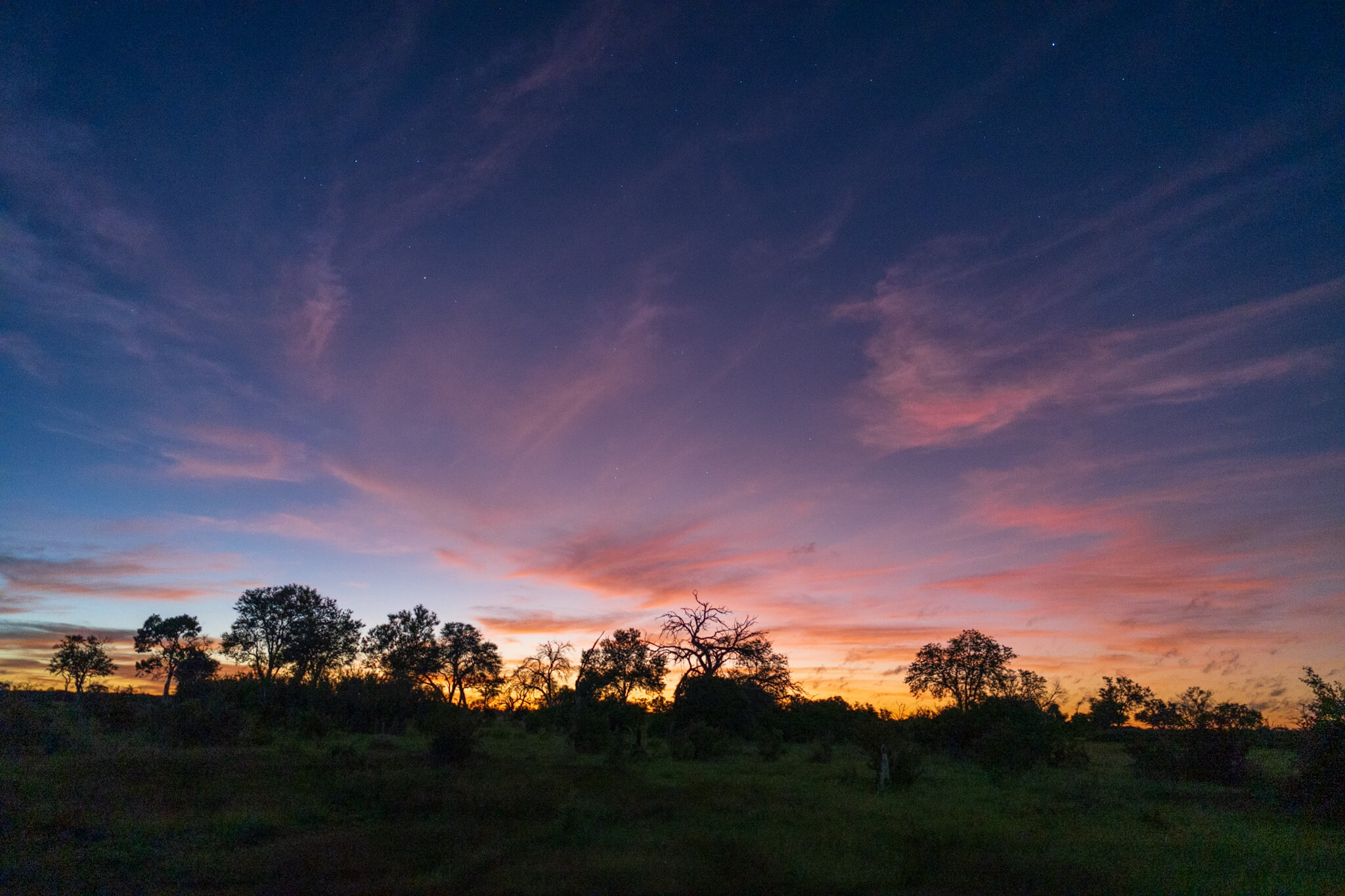
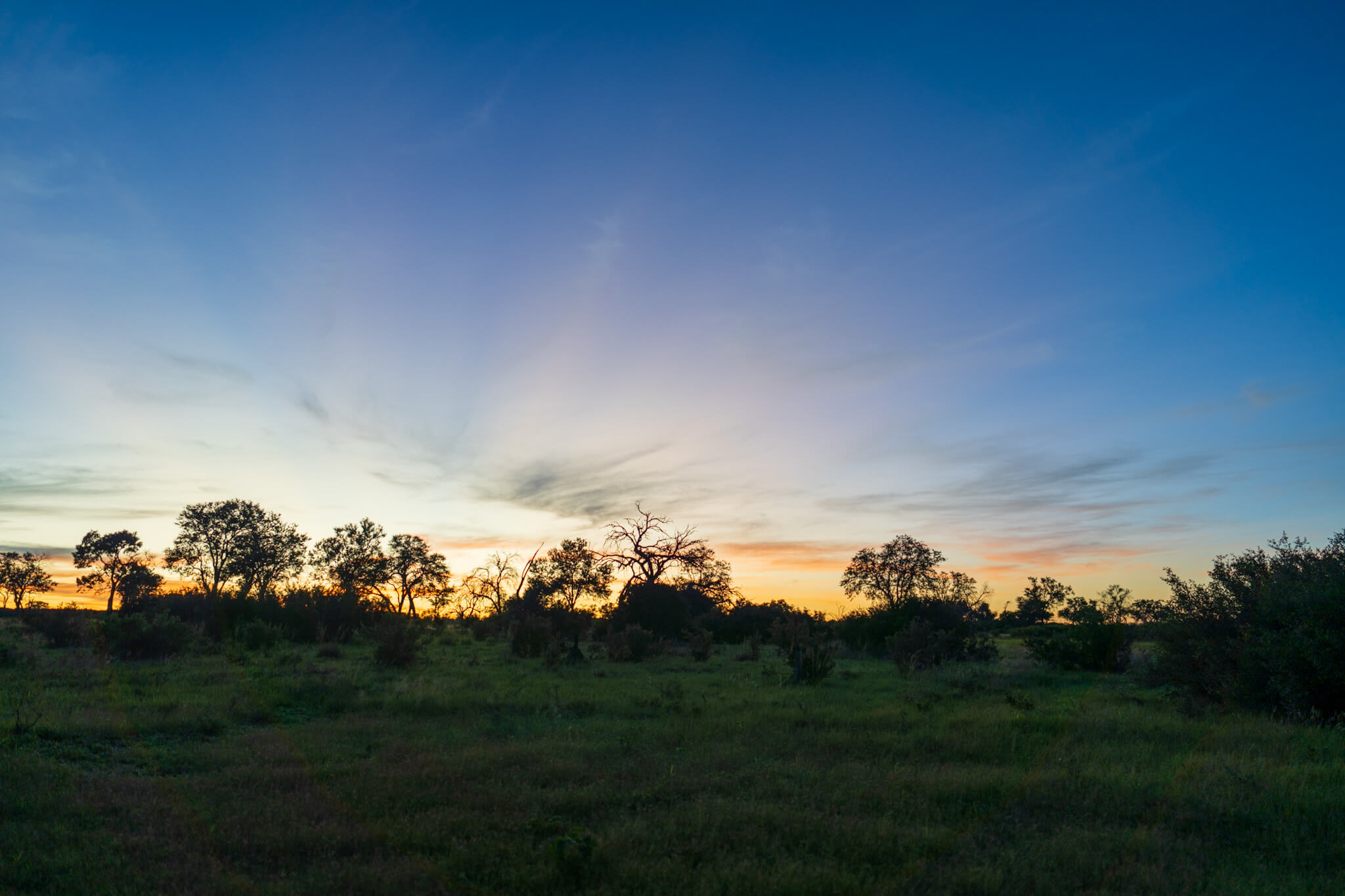
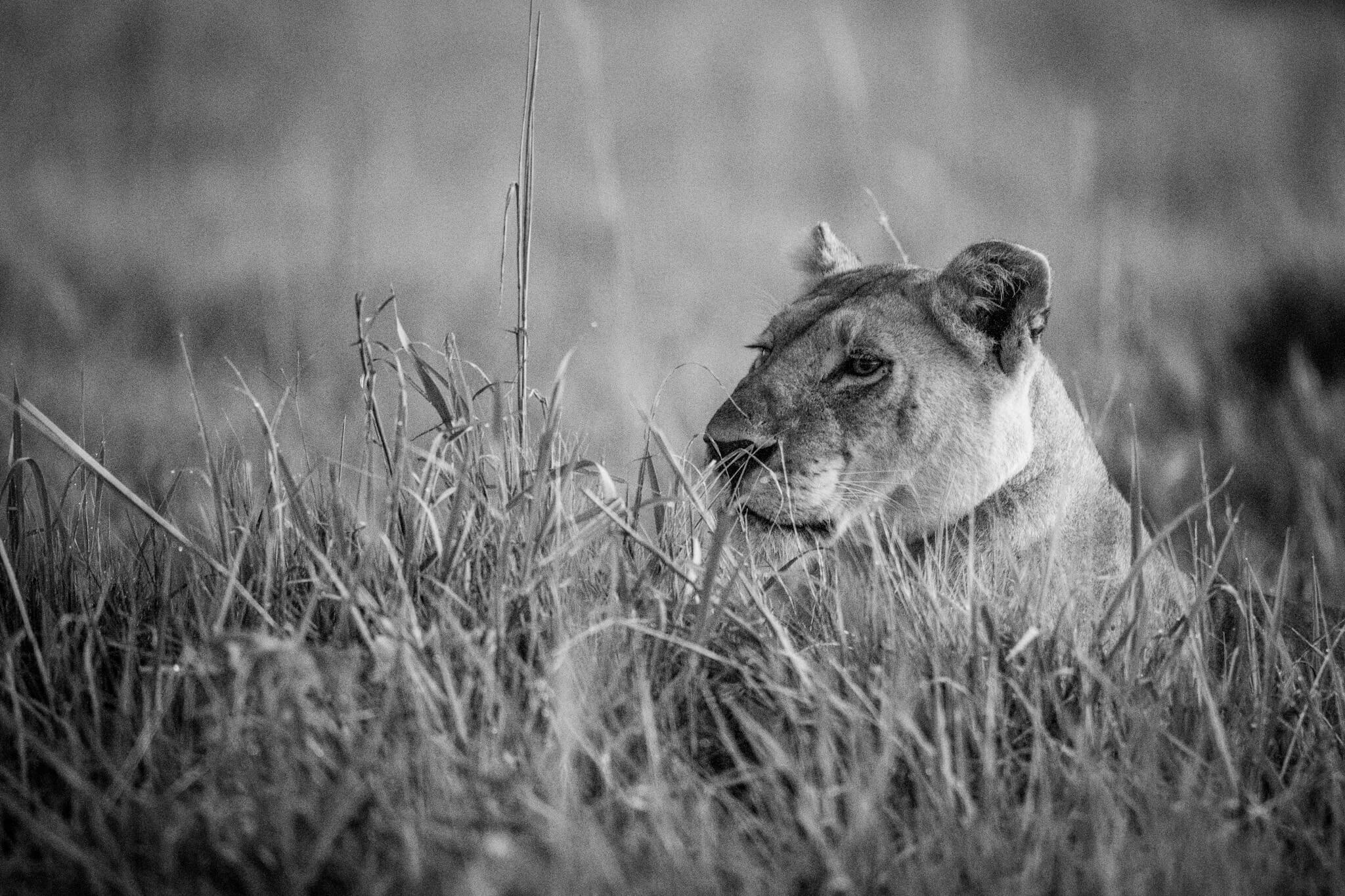
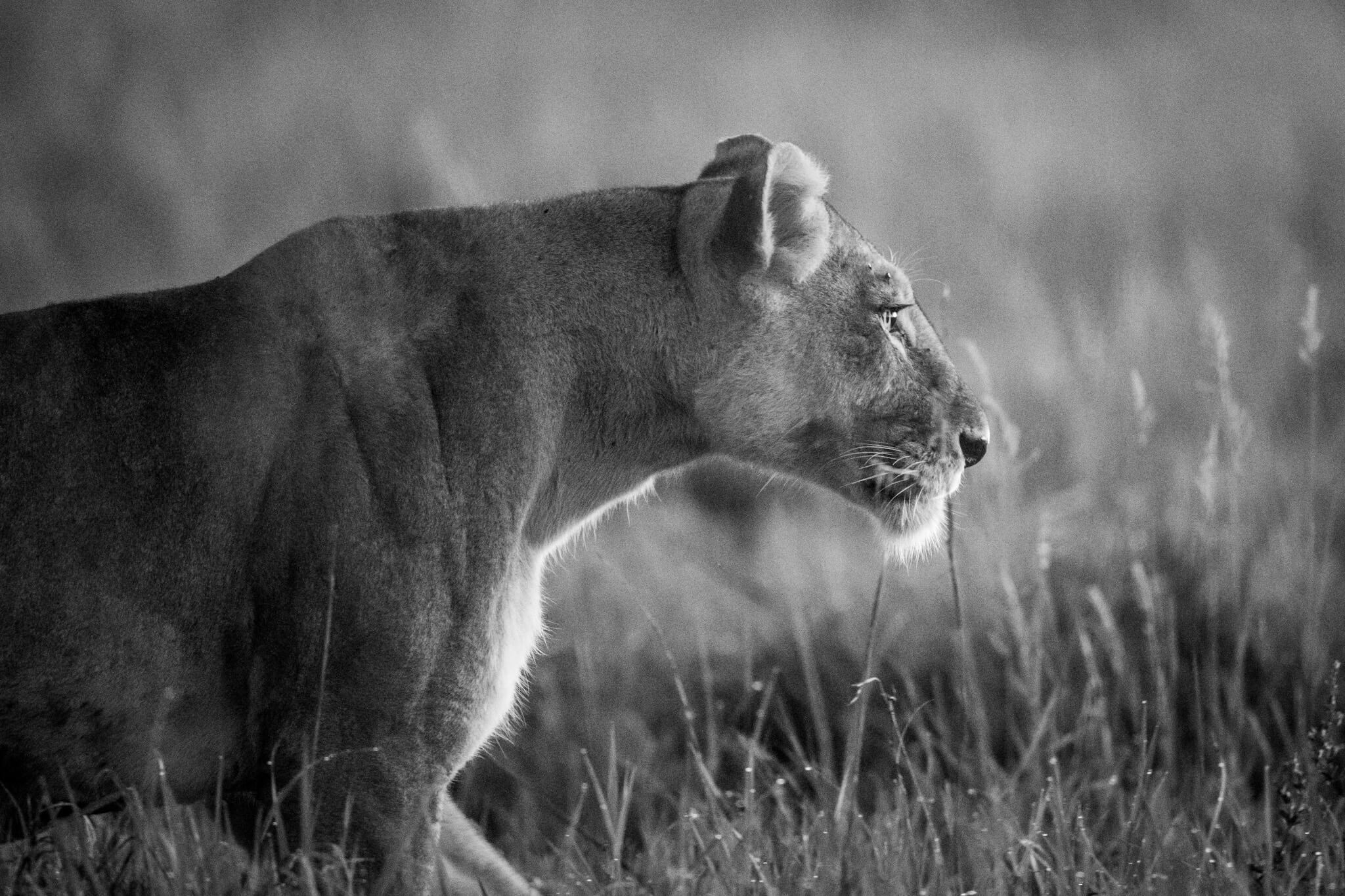
We stay
Because we had turned off the engine right at the sighting, the residents of Campsite 1 knew we had been successful. After about 10 minutes, we saw car lights in the rearview mirror. Meanwhile, we spotted two male lions on the road some distance away. They were lying relaxed on the road. We didn’t miss that and drove slowly towards them. When the lioness left and joined them, things started to move. We followed the trio as they leisurely walked down the road and headed towards the river. When the opportunity was right, we overtook them and took an angle that allowed us to observe and, of course, photograph them in the now beautiful morning light.
This was a lucky day for Guido. He had wanted for a very long time to be able to photograph lions in the tall grass in the morning light. He couldn’t get enough. Two such magnificent males were an absolute stroke of luck. While the campers from Campsite 1 left after a few minutes, we stayed with the three big cats for about 70 minutes and enjoyed the scenery.
You never know what you get. We can’t repeat it often enough! Getting up early was always worth it at the end of the day!
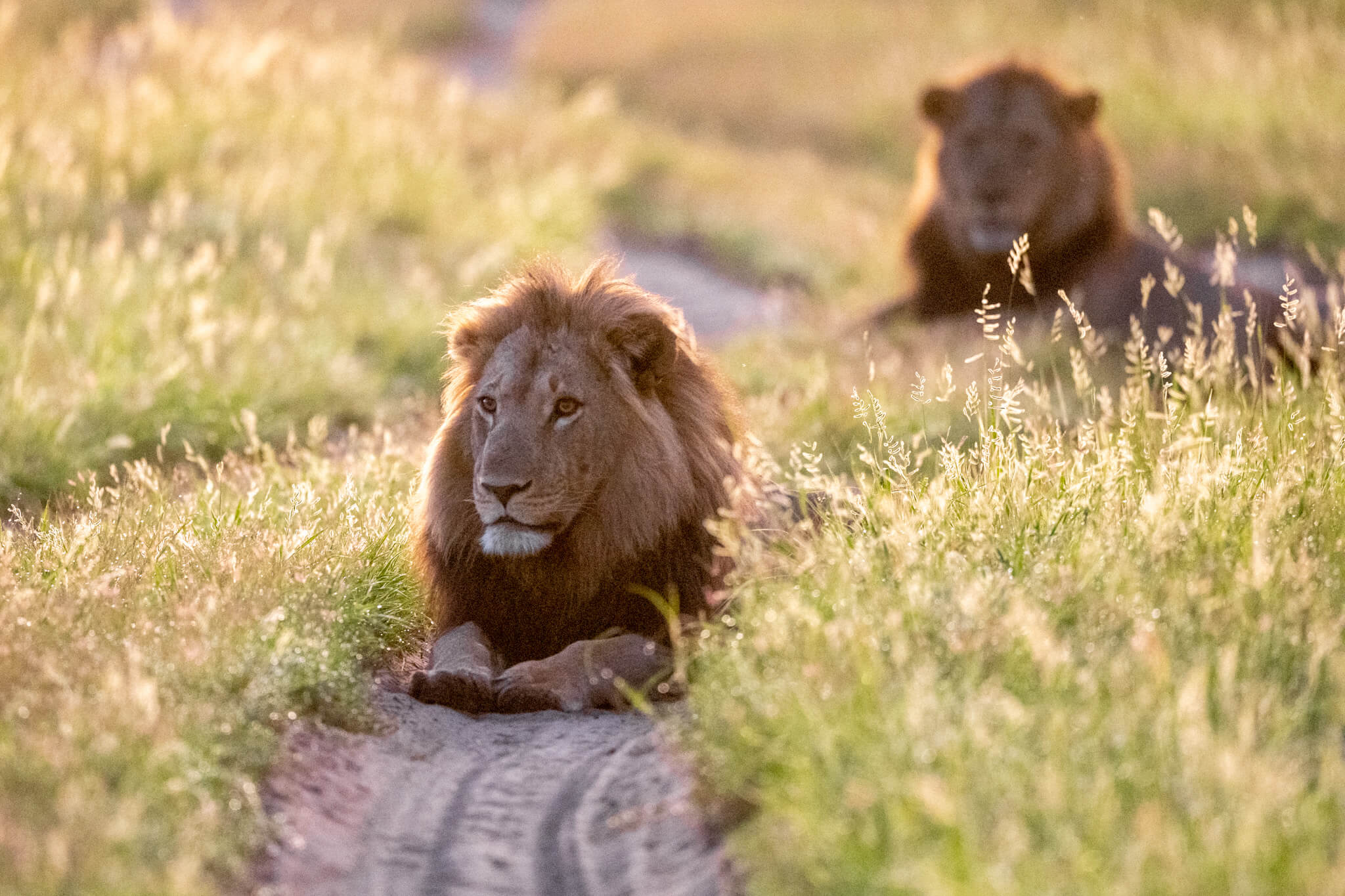
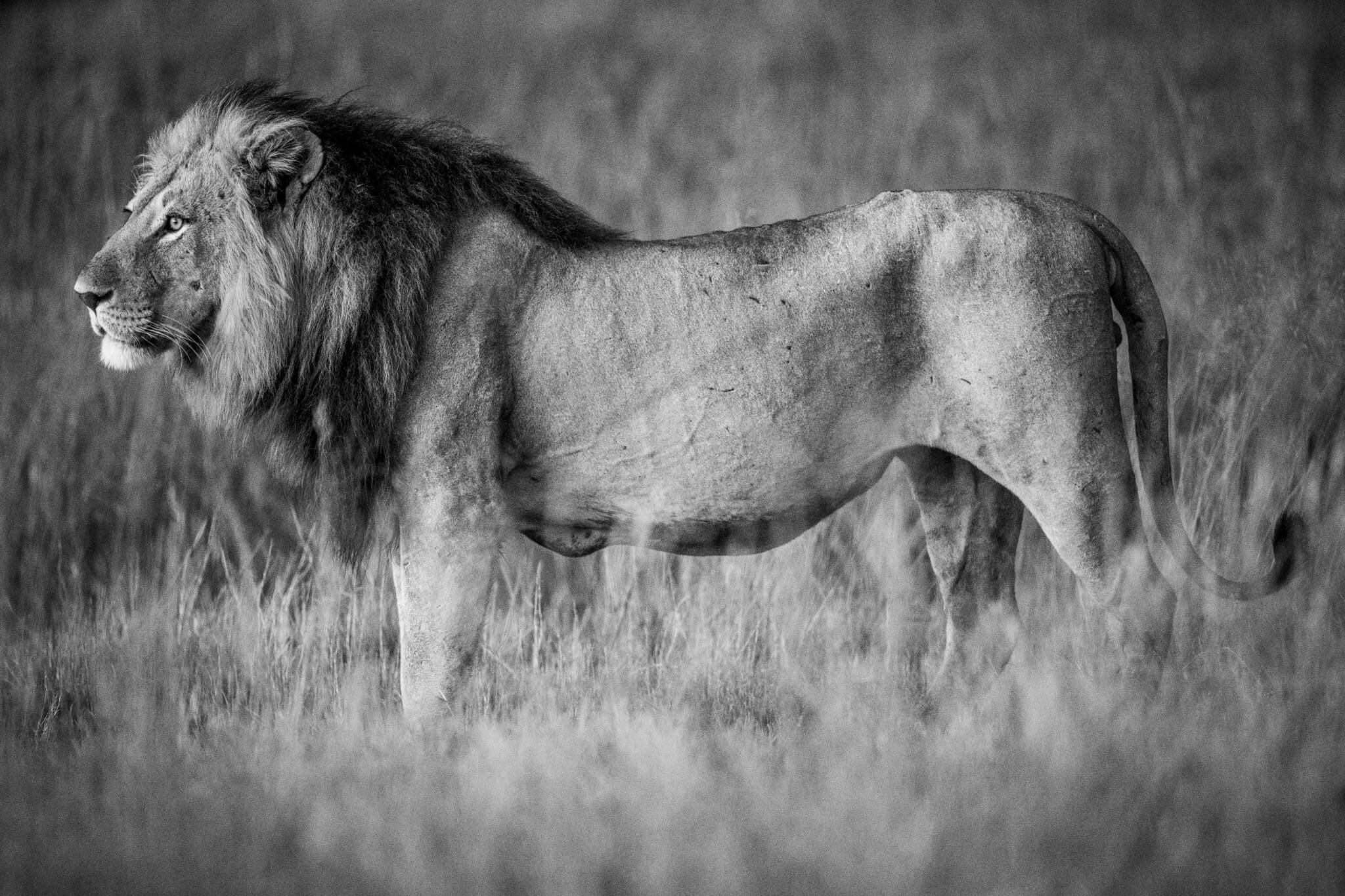
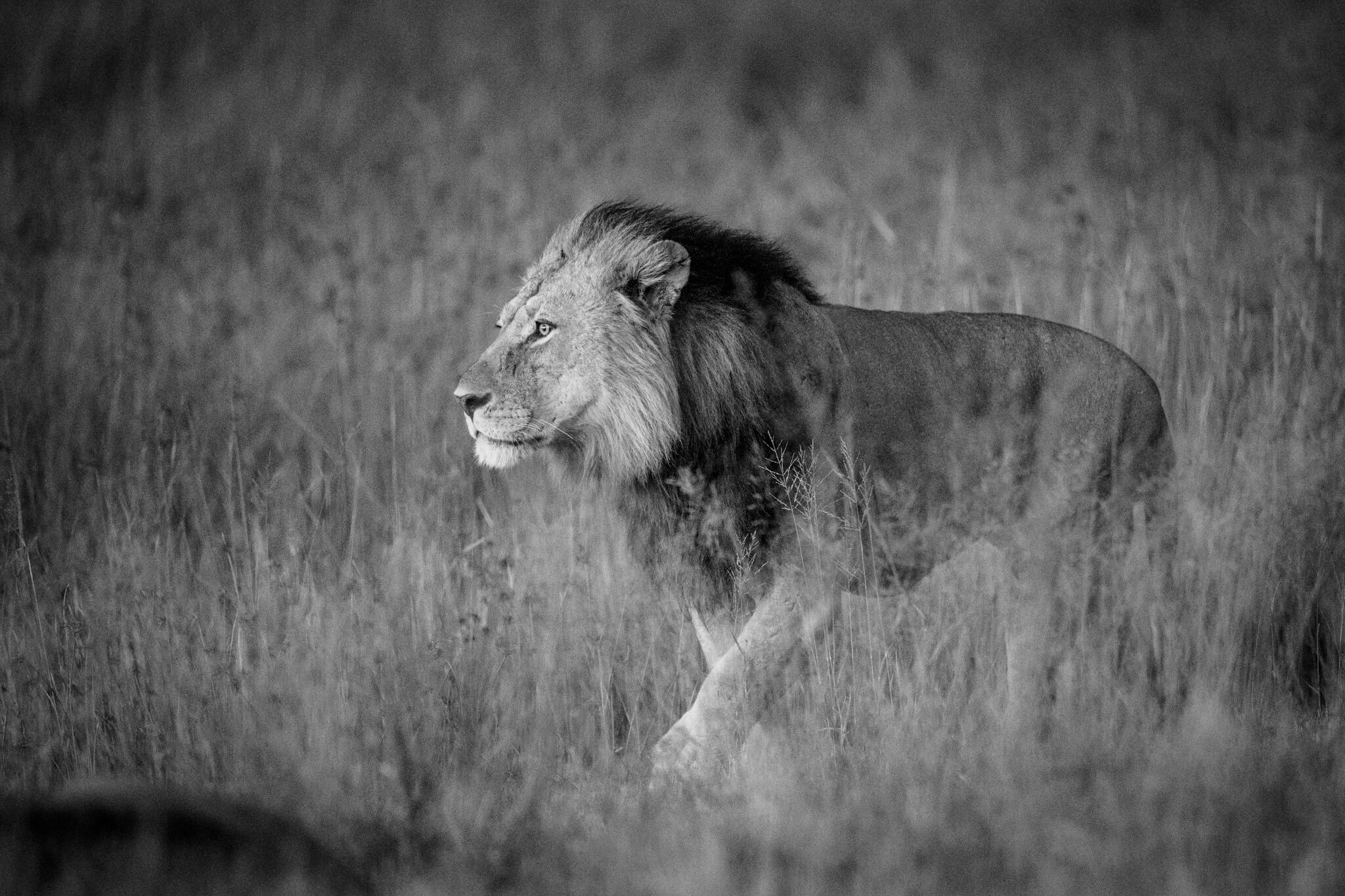
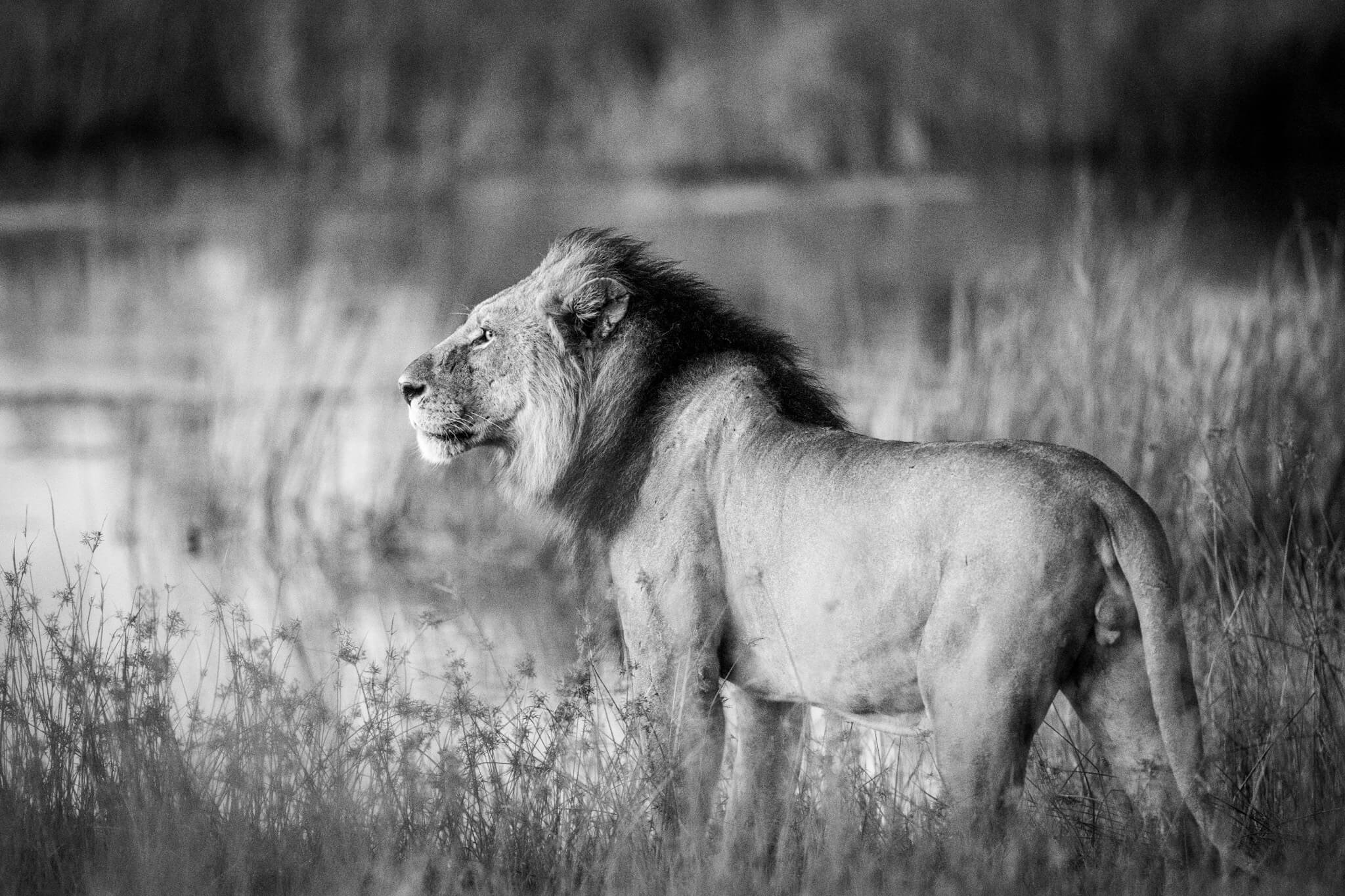
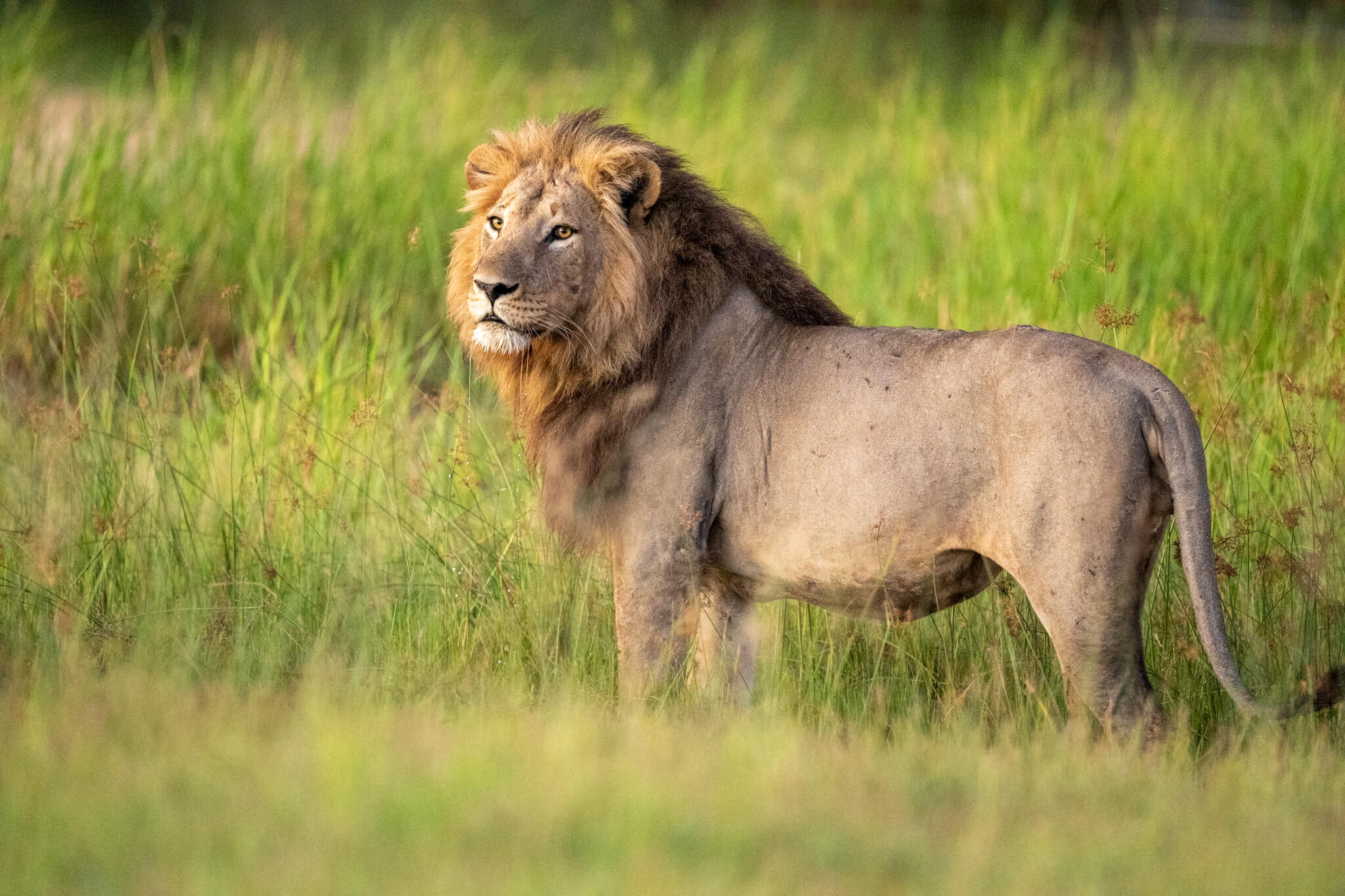
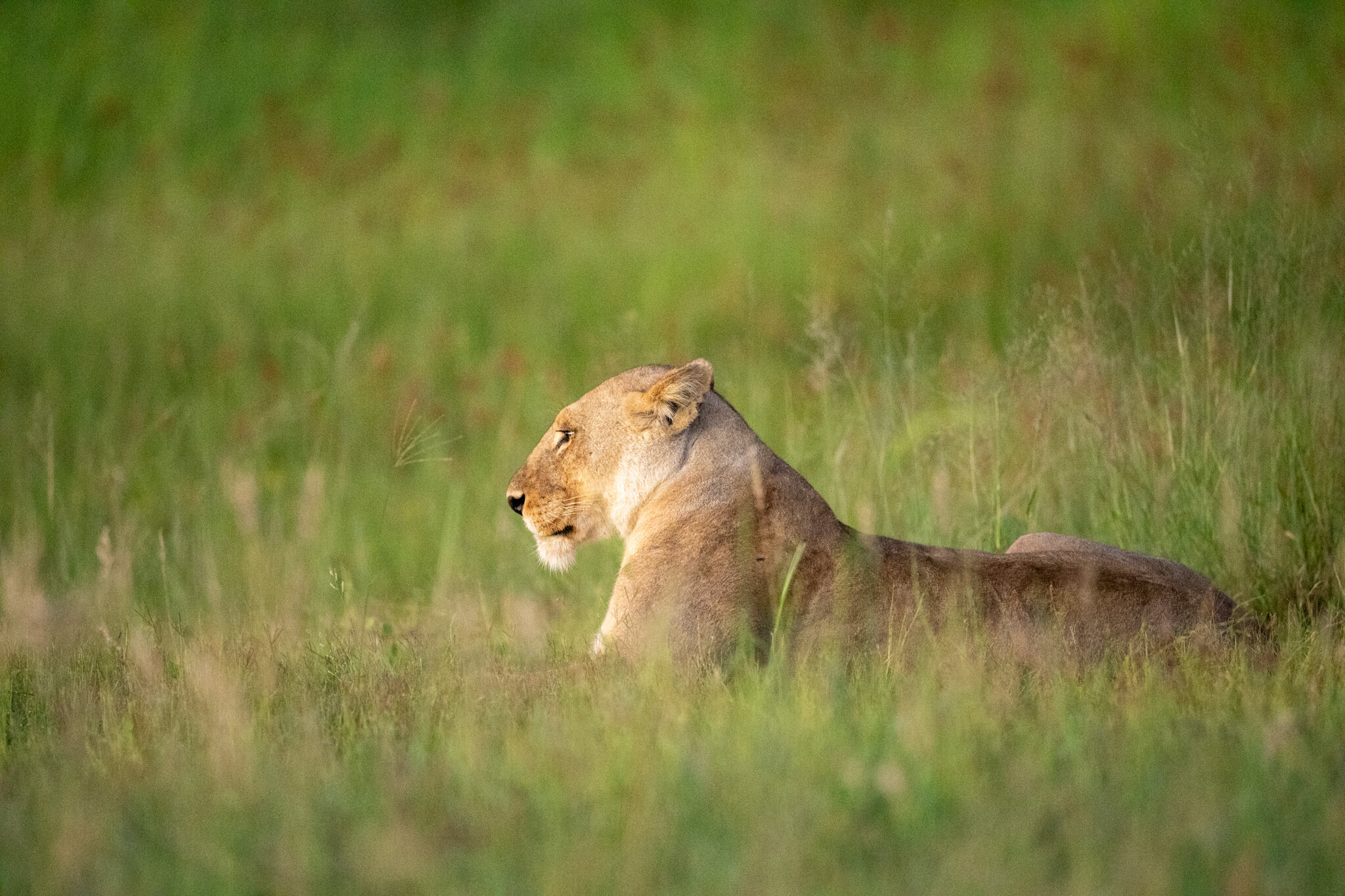
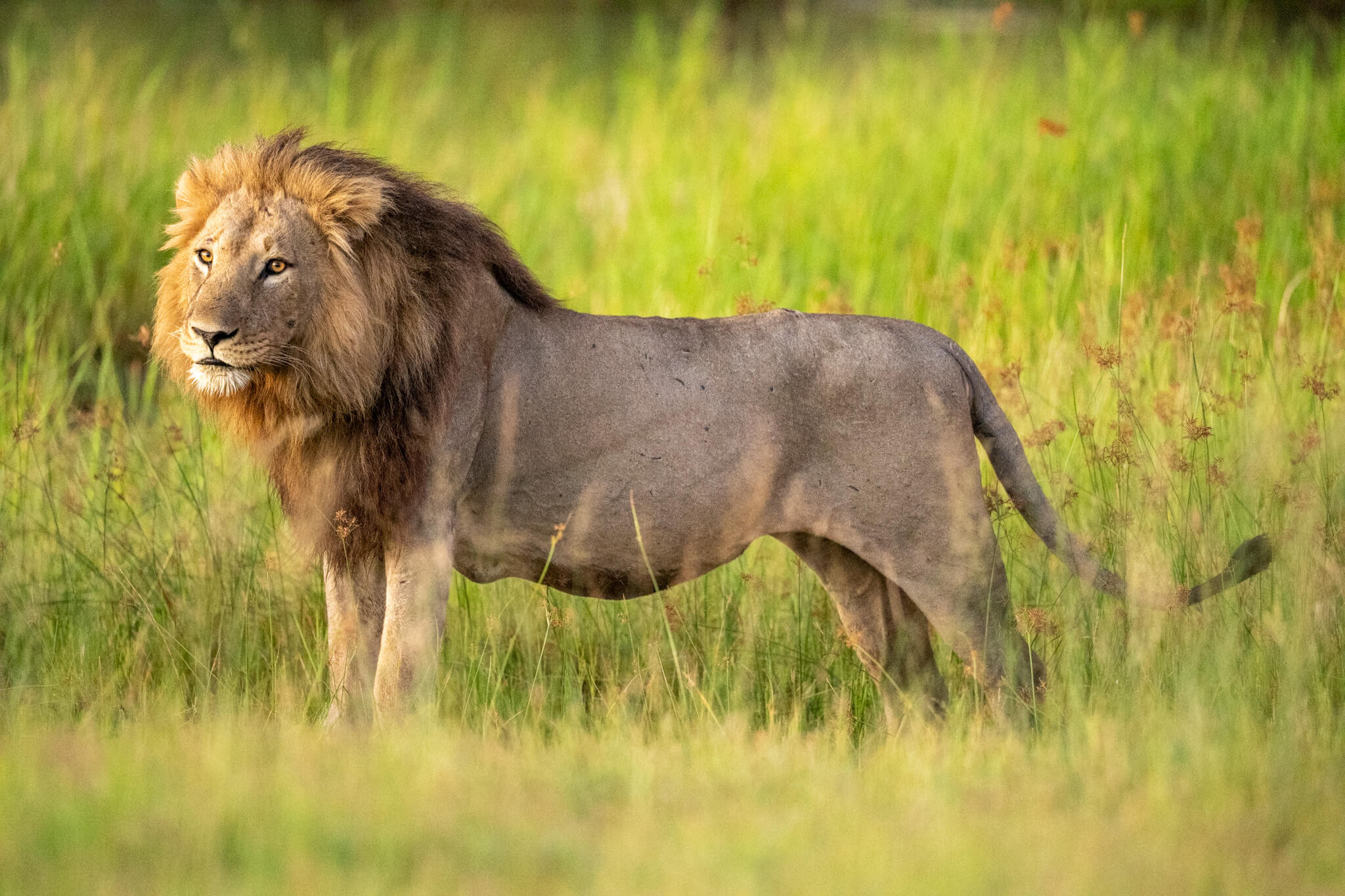
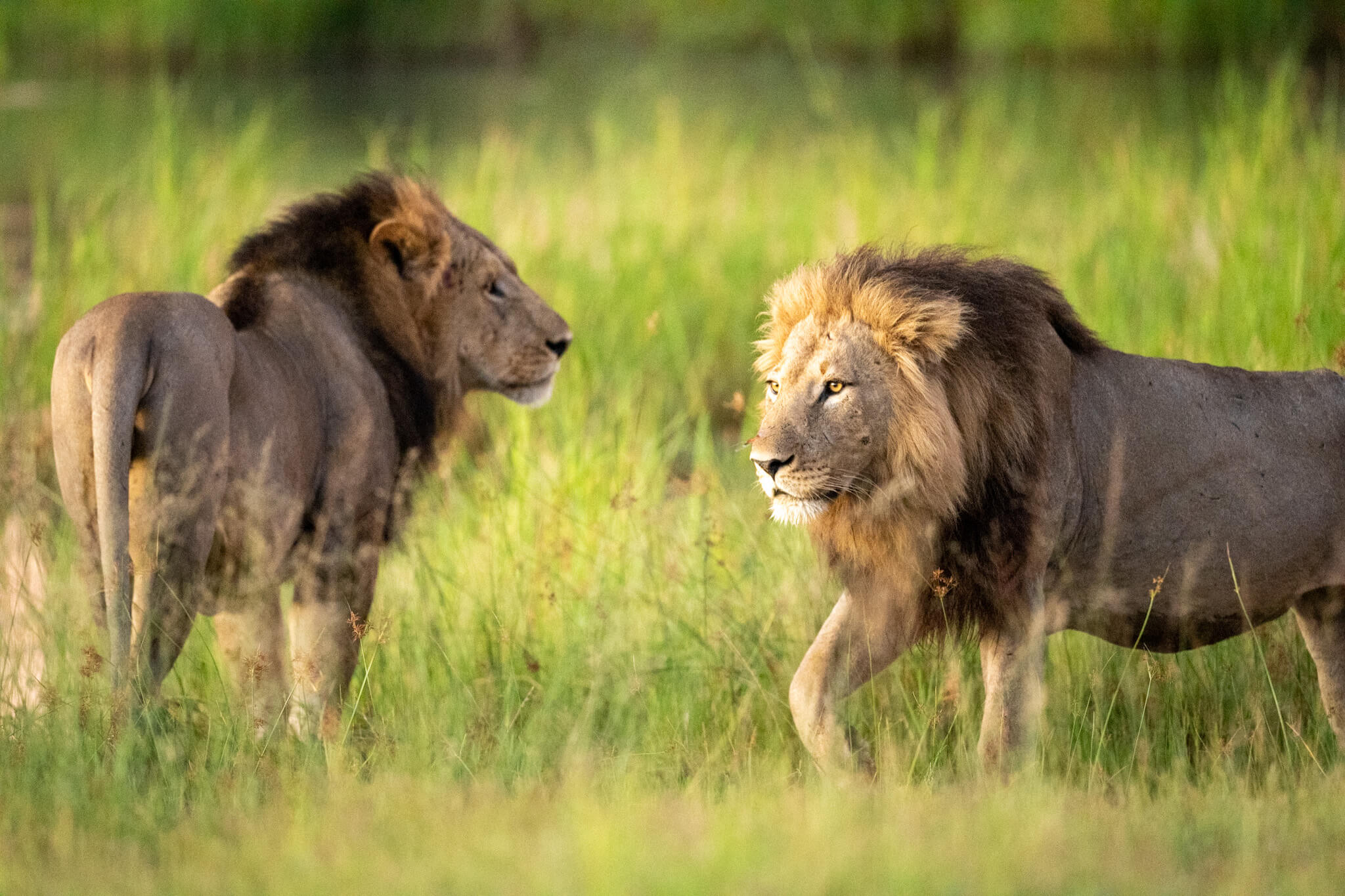
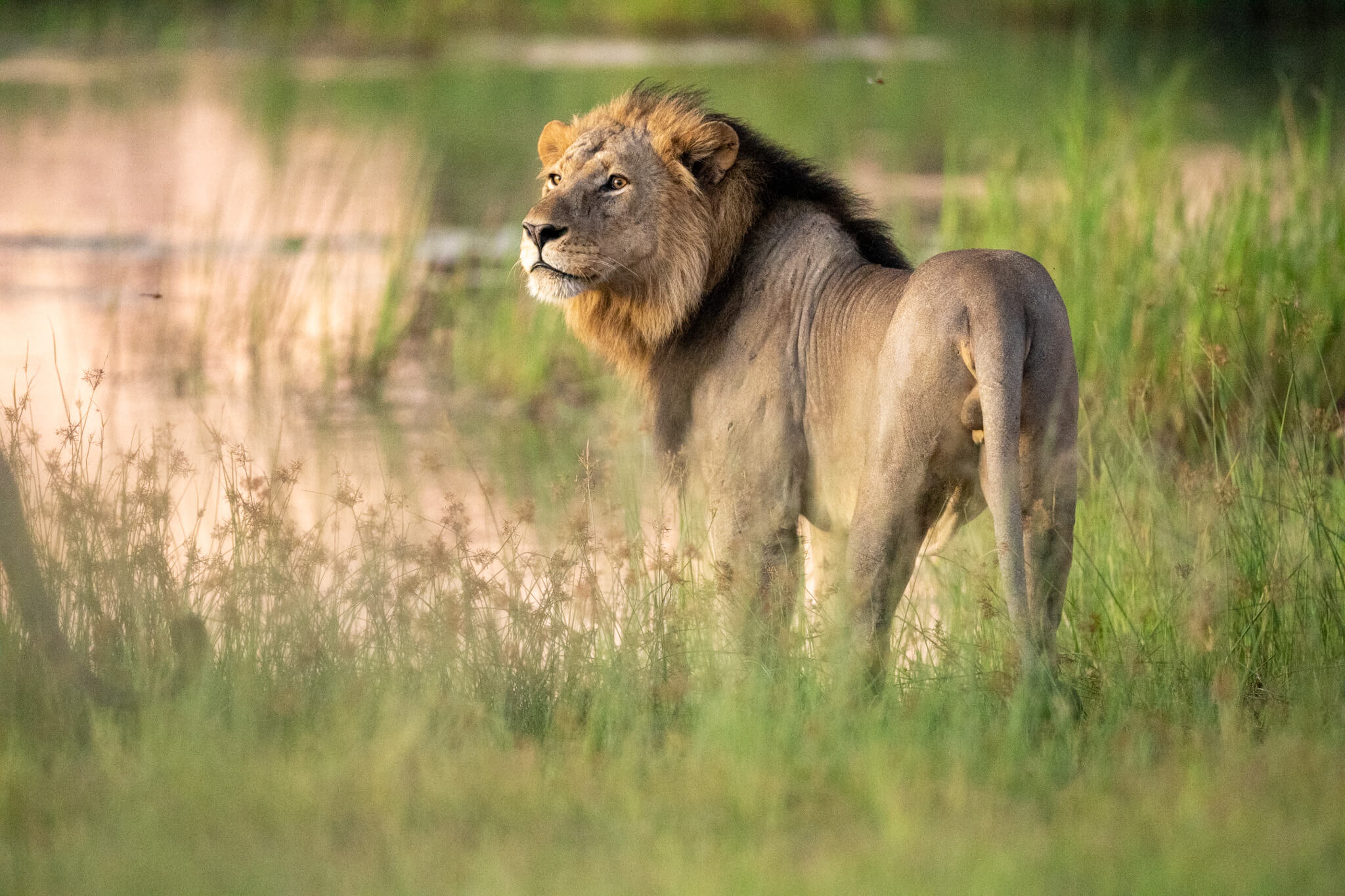
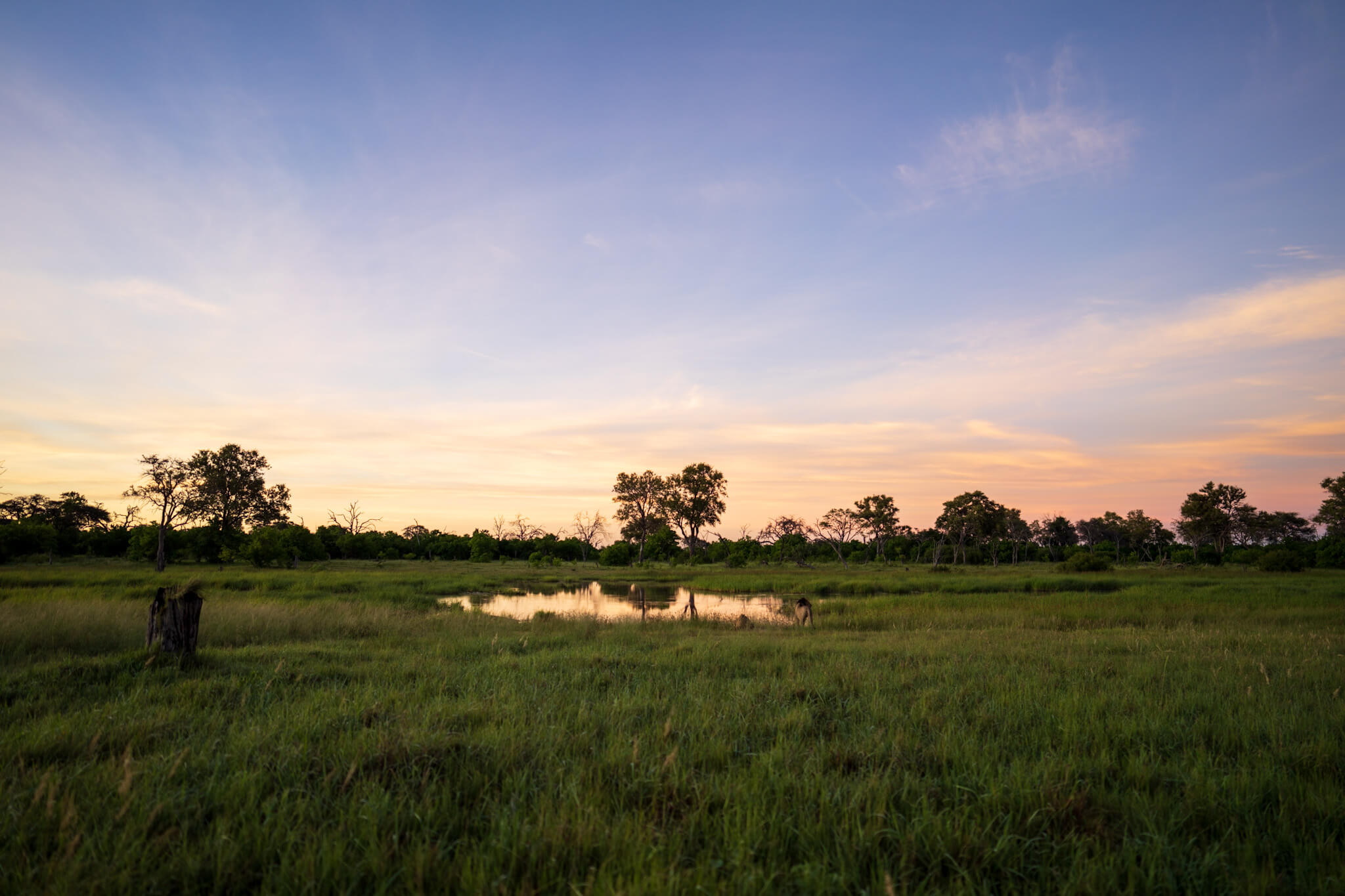
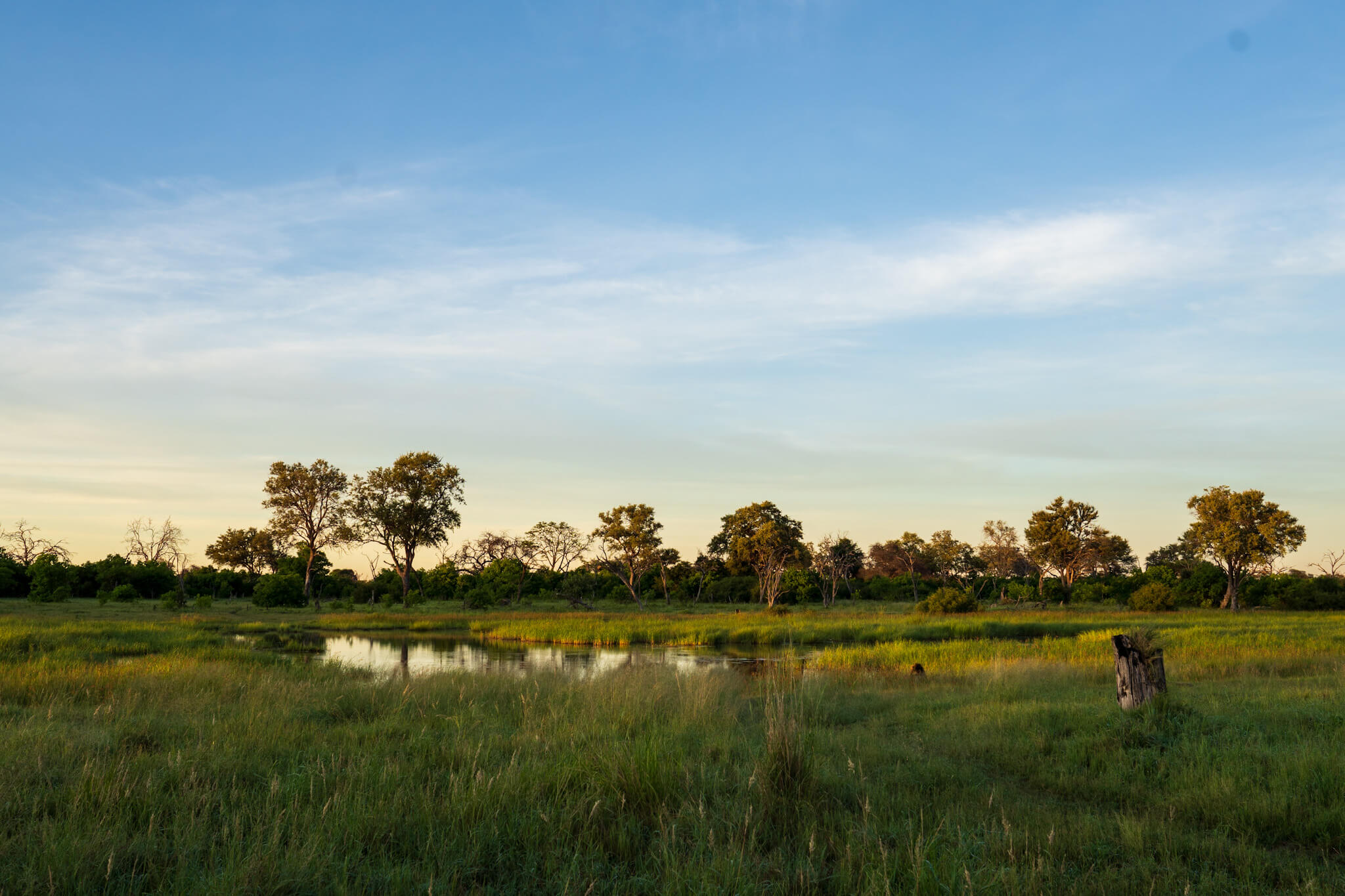
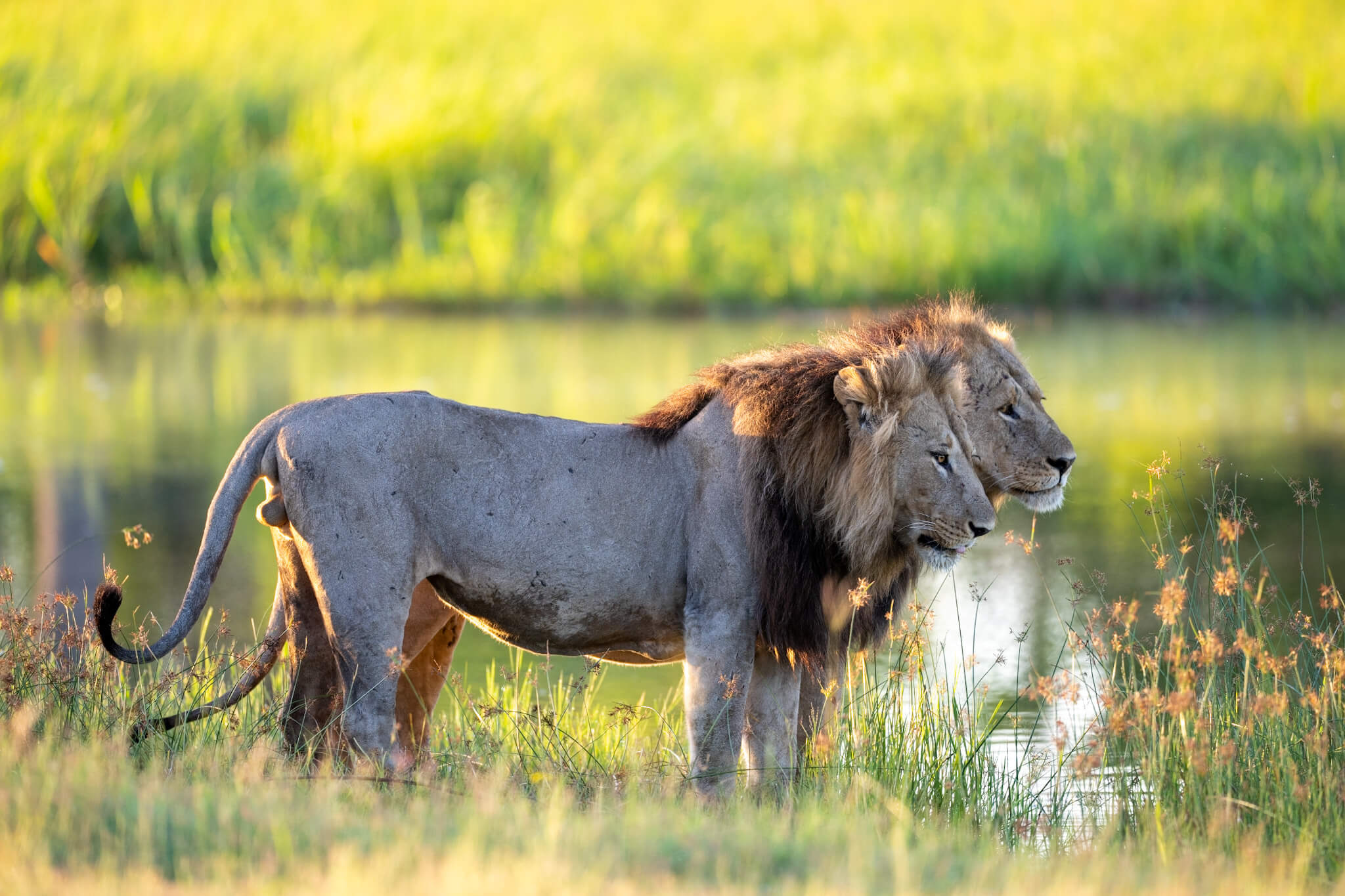
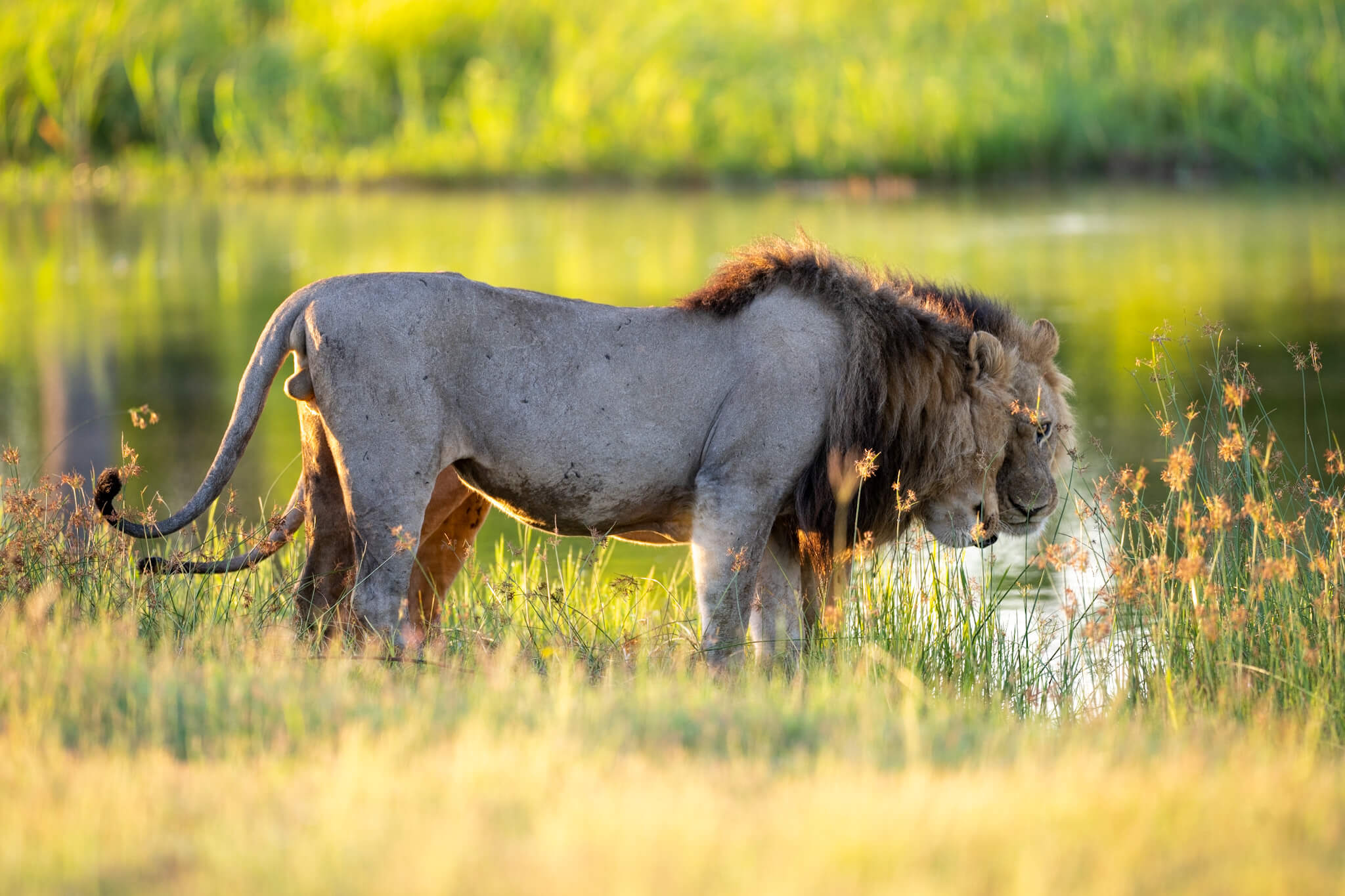
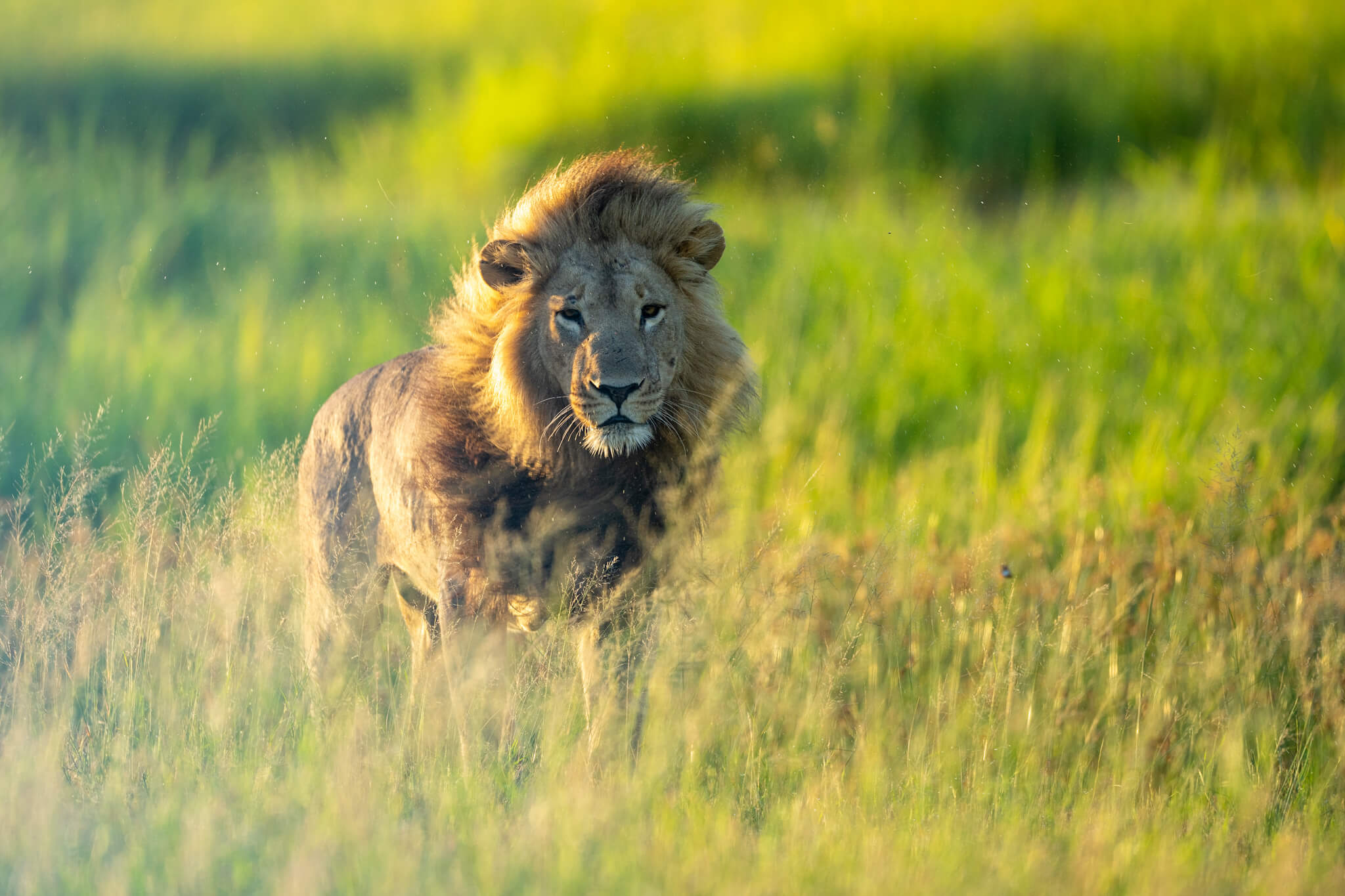
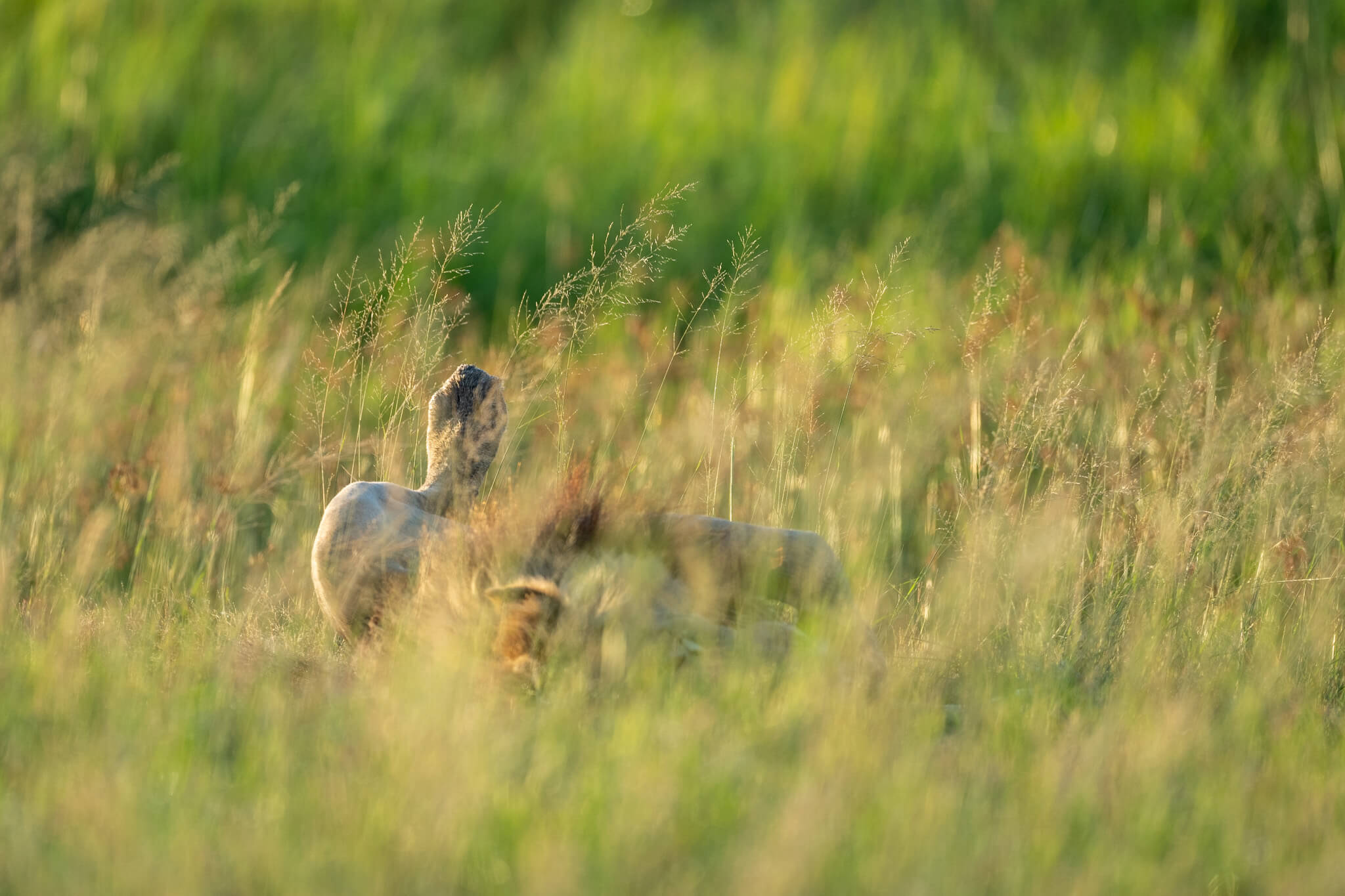
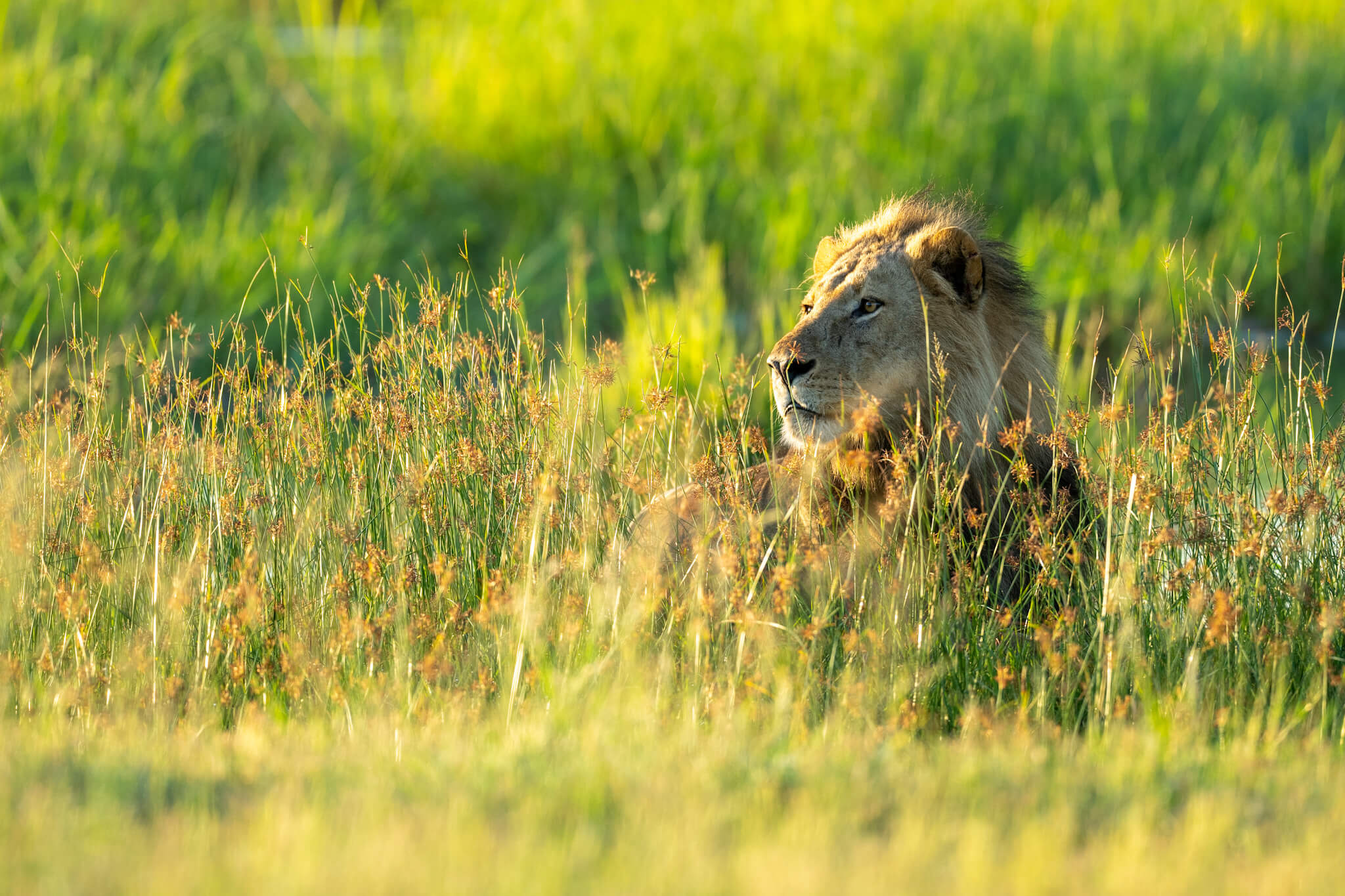
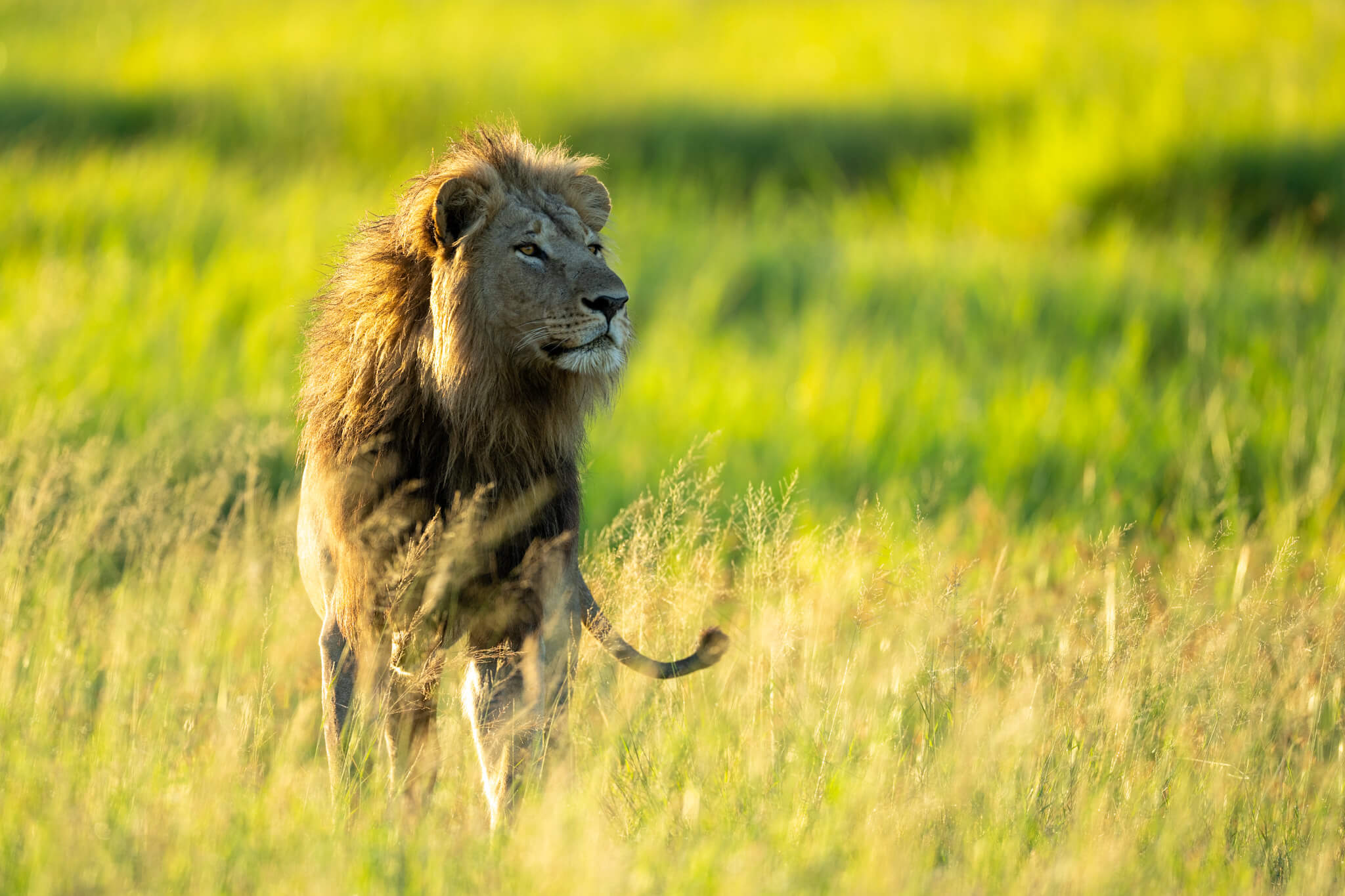
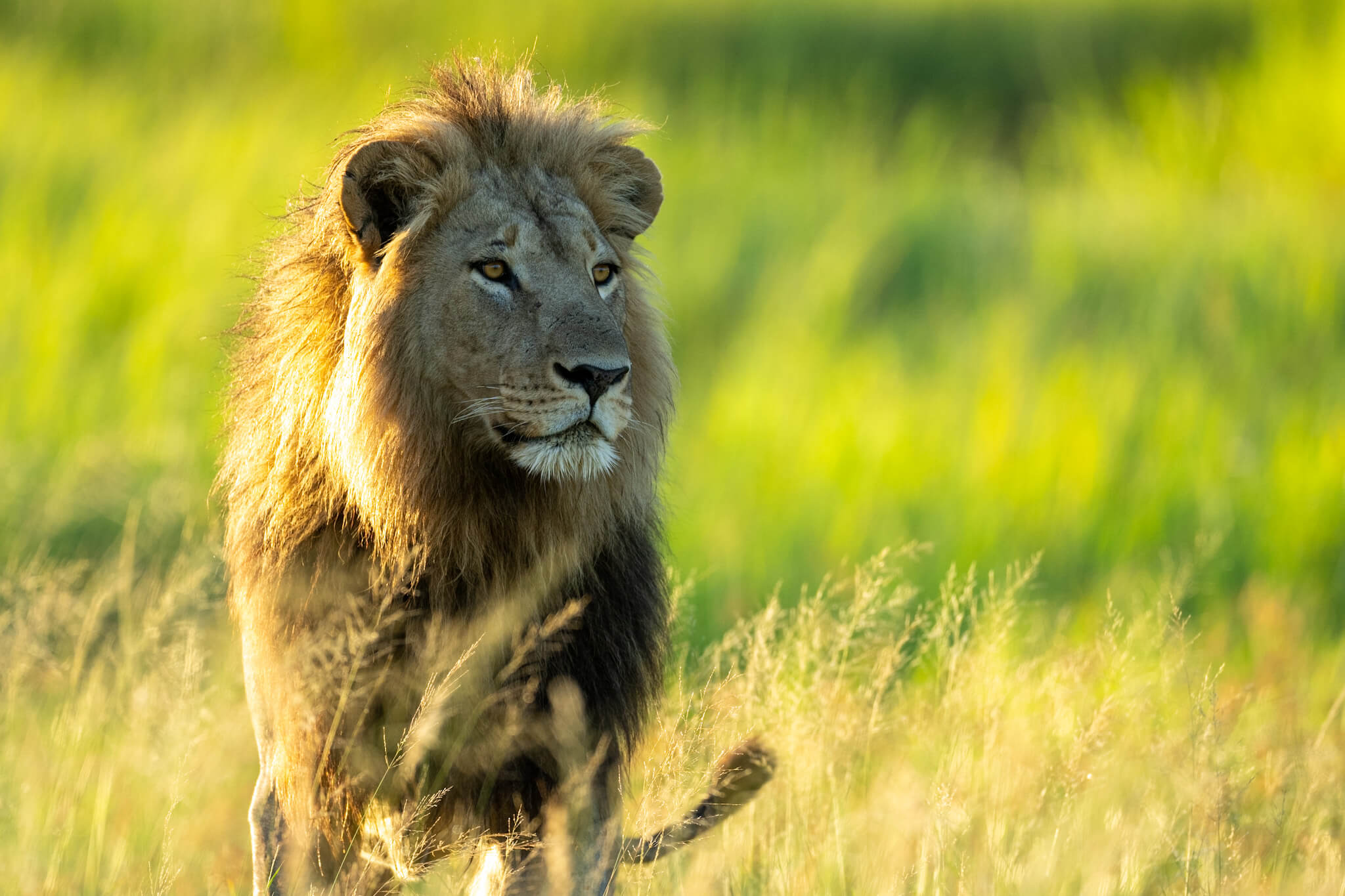
We love the rainy season
The rainy season can hold a lot of frustration. You experience more game drives without sightings than with. There are many reasons for this. There is the very dense bush and tall grass, which makes sightings much more difficult. In addition, there are many natural waterholes and puddles everywhere, so that the animals do not have to come to the waterholes. As a result, some of the species are retreating – for example, herds of elephant and buffalo. This can affect the number of cats in the region.
Nevertheless, we love this time, because there is abundance wherever the eye looks. Nature is lush green, the plants and grasses sprout. The animals have many offspring, which is in keeping with life. In addition, tourism is reduced and it is much quieter at popular places. We always get a place – without reservation. We left Magotho with a smile on our faces after the third night – we had not seen the lions again.
